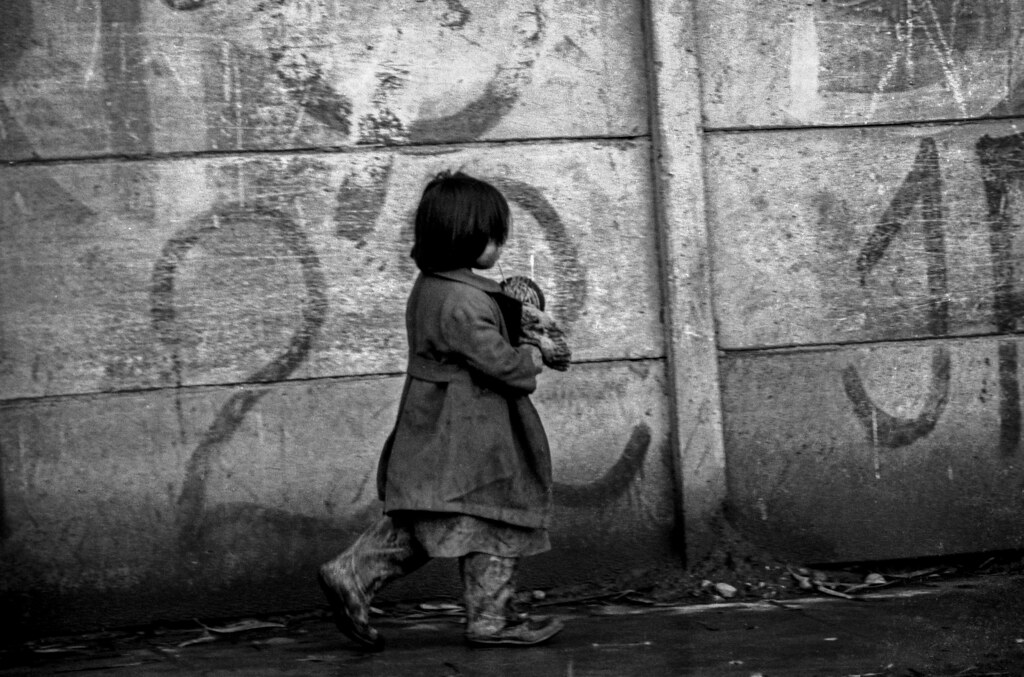
Pena. Santiago, 1962: photo by Marcelo Montecino, 17 December 2018
Excrement spreads from back to front finding creases and somehow the order of a day how fear
sets vertu aside how the soi-disant decision gleams yes one girl in the corner arches her back
the wrong way then up straight and settles assertions stunted slither from front to back
a doll face and you know there's a conversation to be had but wait but wait a lulling smile
Wooden Boy: Set Time, from The Little Wooden Boy, 4 August 2018

Going Home, Chichi, Guatemala, 1982: photo by Marcelo Montecino, 4 March 2014

Angelito, Santiago, 1962 | "Angelito" means little angel. Small children who die are called "angelitos".: photo by Marcelo Montecino, 12 August 2017
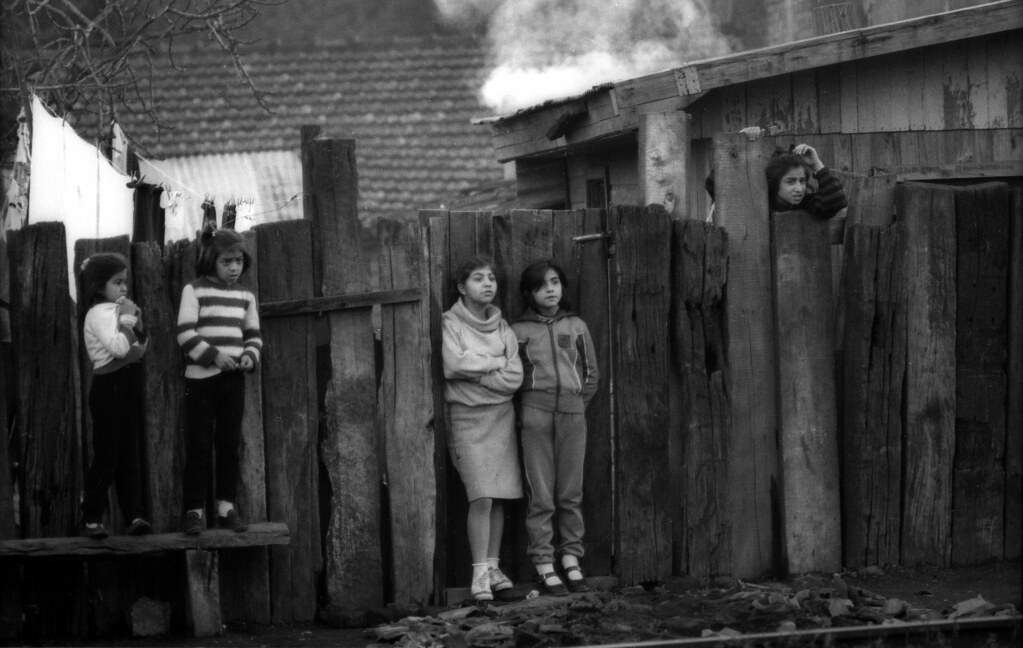
Lota, Chile, 1989 29: photo by Marcelo Montecino, 18 May 2015
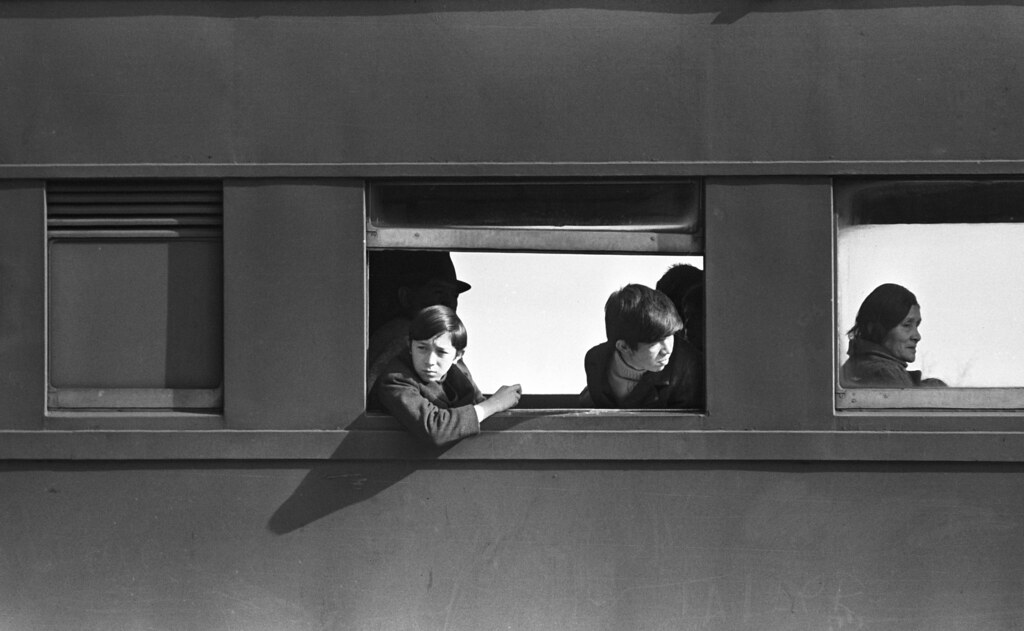
Third Class, Osorno, Chile 1973: photo by Marcelo Montecino, 13 August 2014
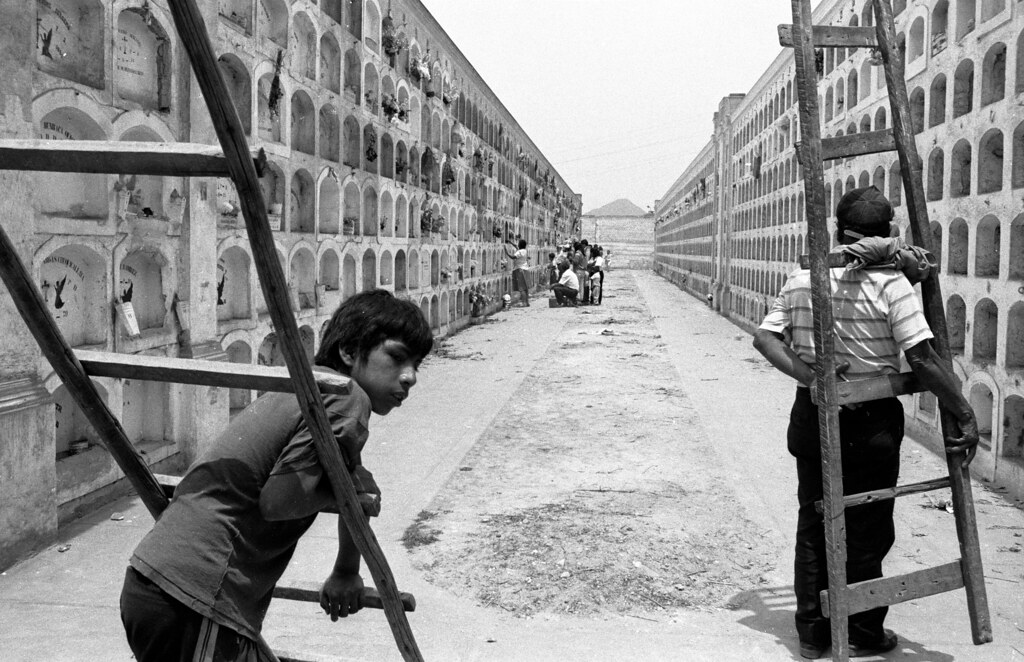
Lima Cemetery, 1992, Peru: photo by Marcelo Montecino, 24 November 2014

Of human bondage, Bolivia, 1986: photo by Marcelo Montecino, 18 July 2017
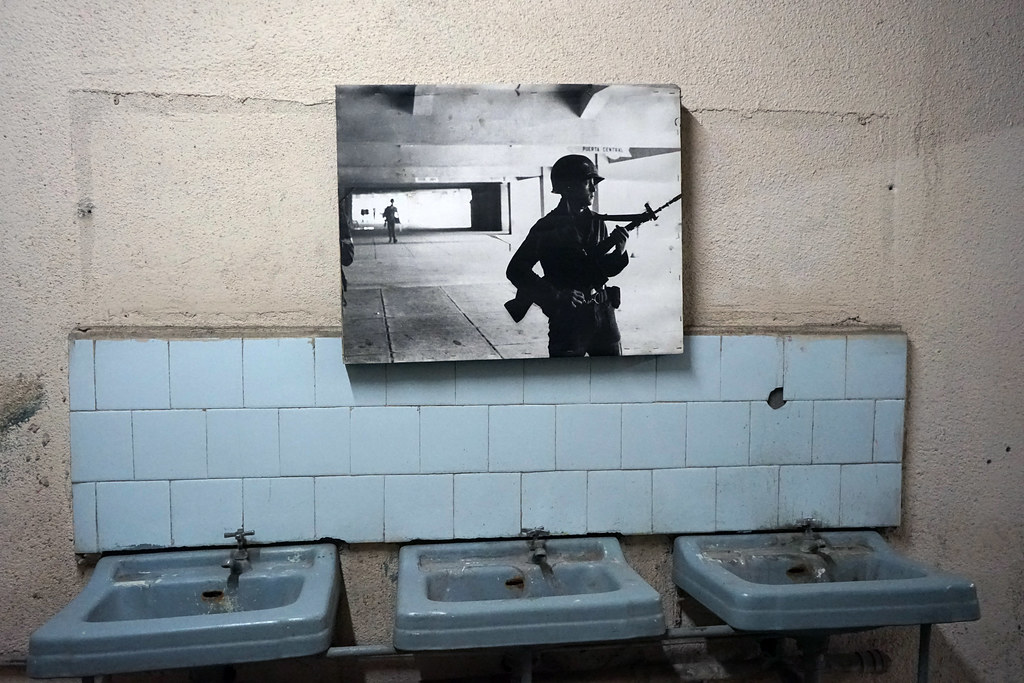
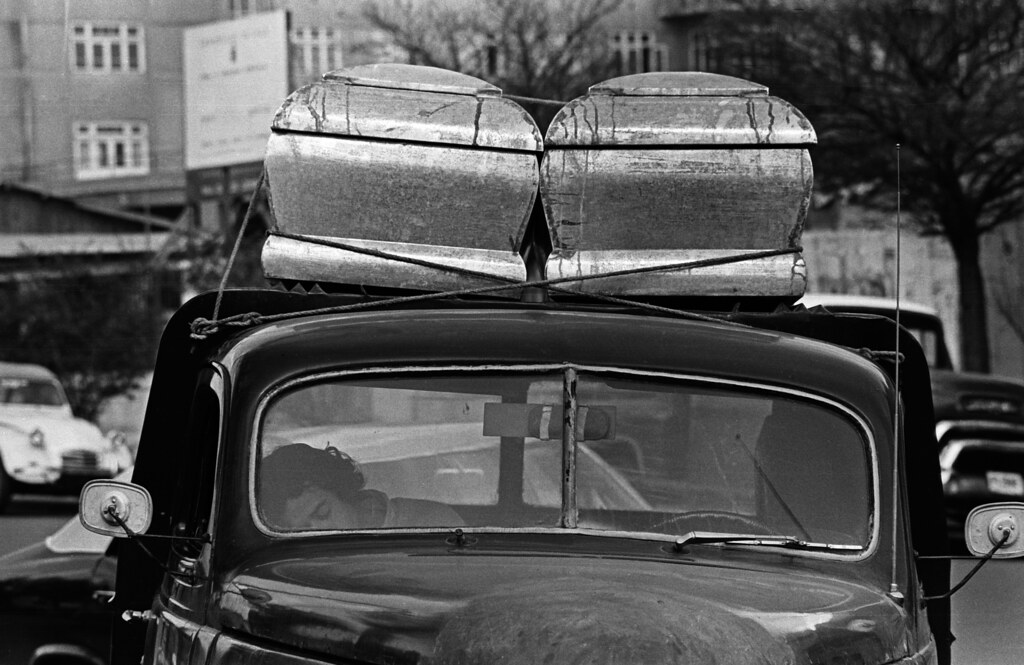
In Front of the Morgue, Santiago, Chile, 1973: photo by Marcelo Montecino, 25 June 2013
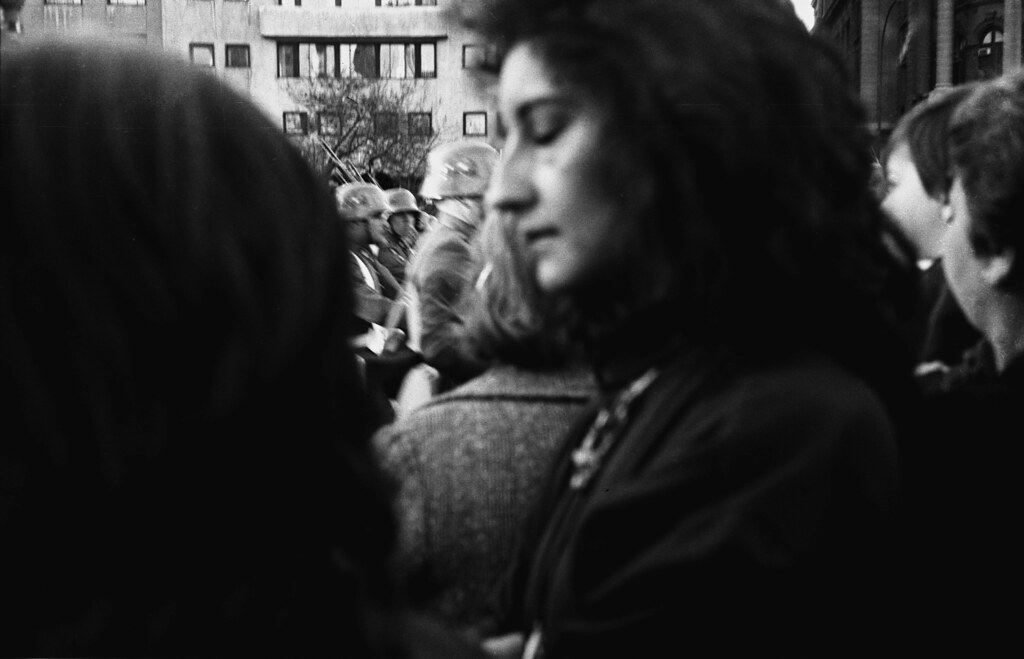
Troops marching into Santiago, Chile, 1988: photo by Marcelo Montecino, 19 May 2015

Pinochet being Nominated, Santiago, 1988: photo by Marcelo Montecino, 26 March 2009
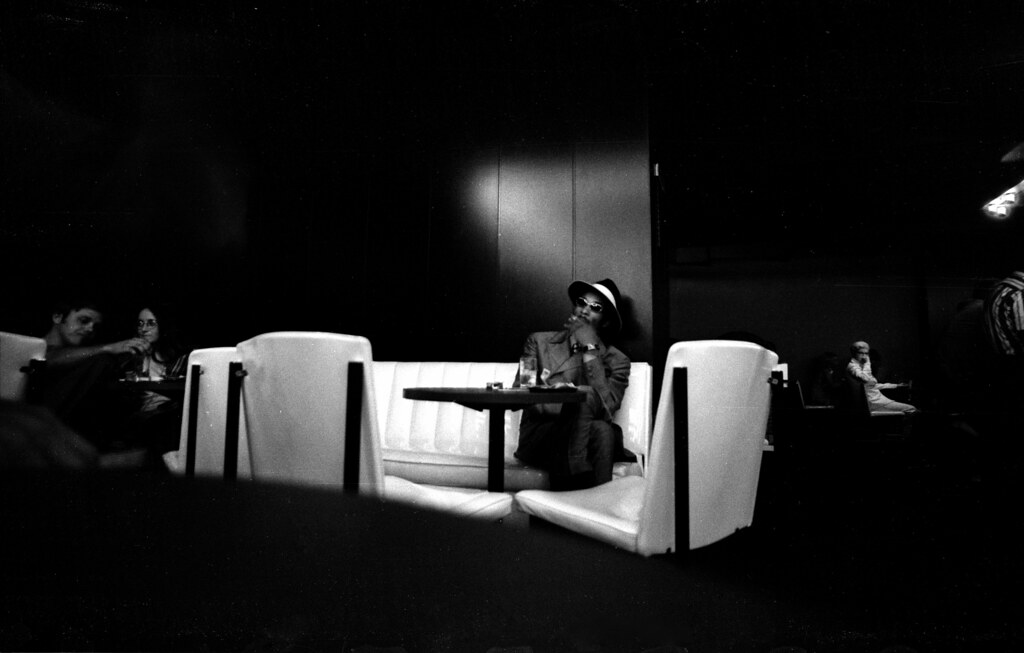
Las Vegas, 1969 | It could be the late 60s.: photo by Marcelo Montecino, 18 October 2011
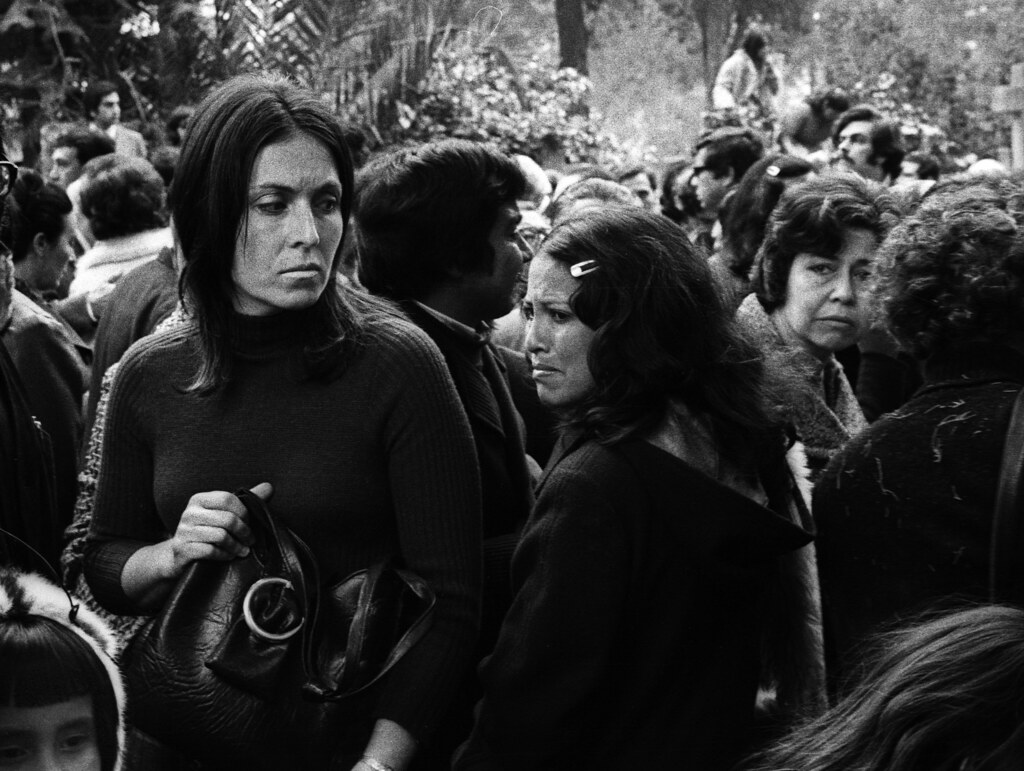
The Funeral of Pablo Neruda, Santiago, Chile, 1973: photo by Marcelo Montecino, 14 September 2014
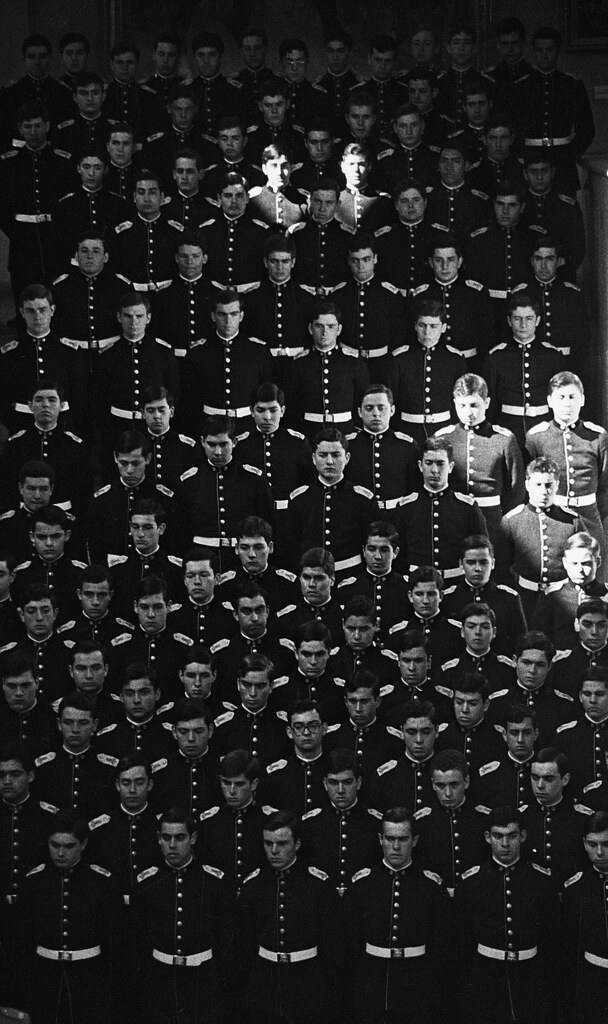
Cadets, Santiago, Chile, 1973: photo by Marcelo Montecino, 12 March 2013
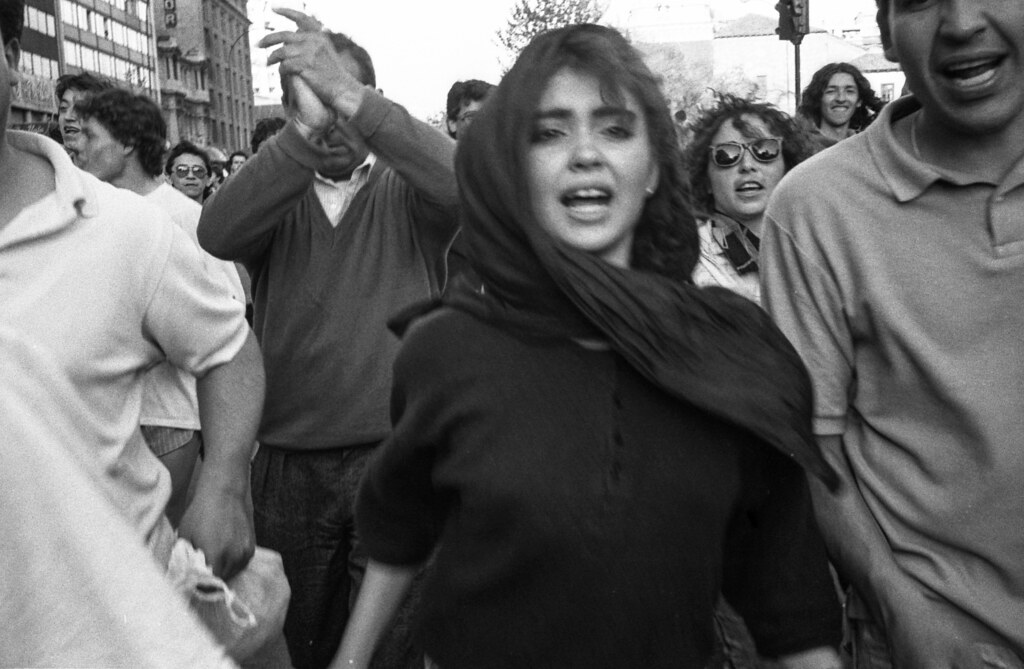
Triumph of the NO, Santiago, 88: photo by Marcelo Montecino, 18 July 2017
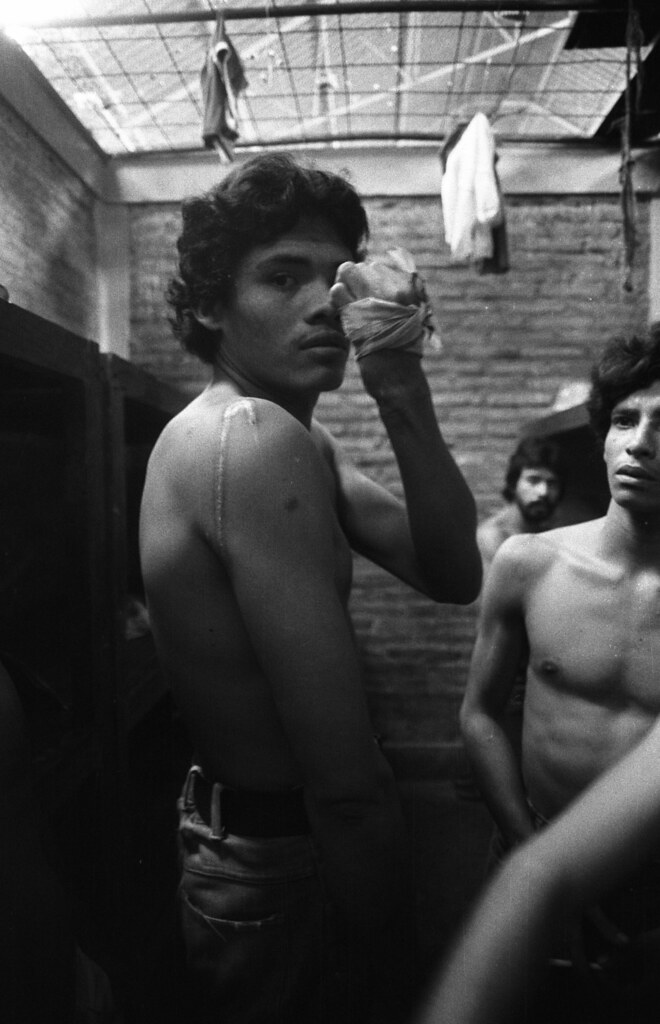
Political Prisoner, Managua, Nicaragua 78-37 | The prisoner had his hand broken and burned with battery acid.: photo by Marcelo Montecino, 11 August 2015
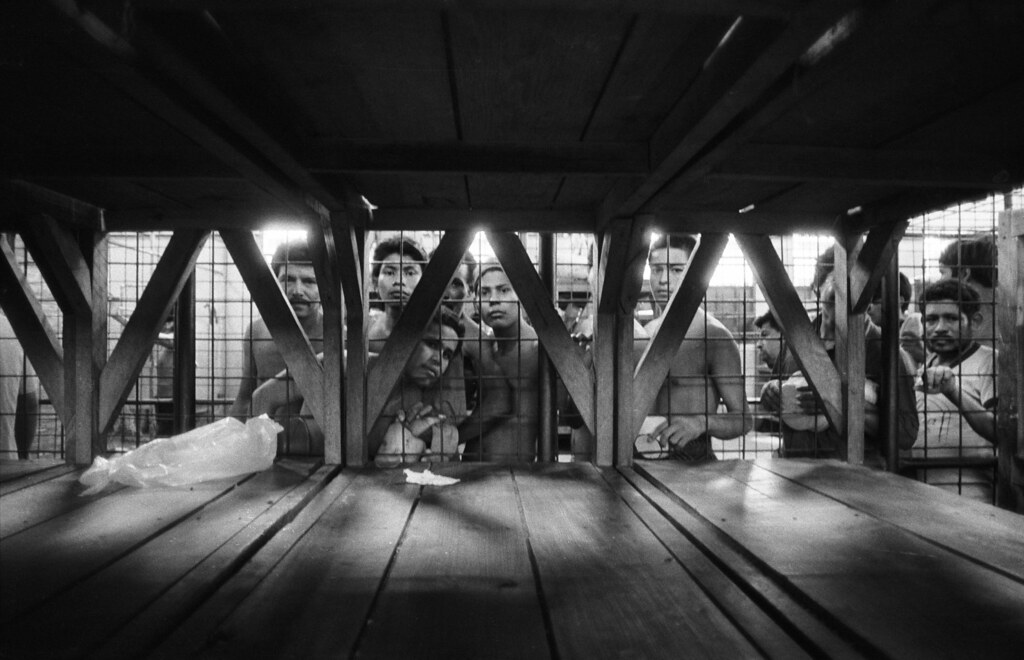
Political Prisoners, Managua, Nicaragua 78: photo by Marcelo Montecino, 11 August 2015
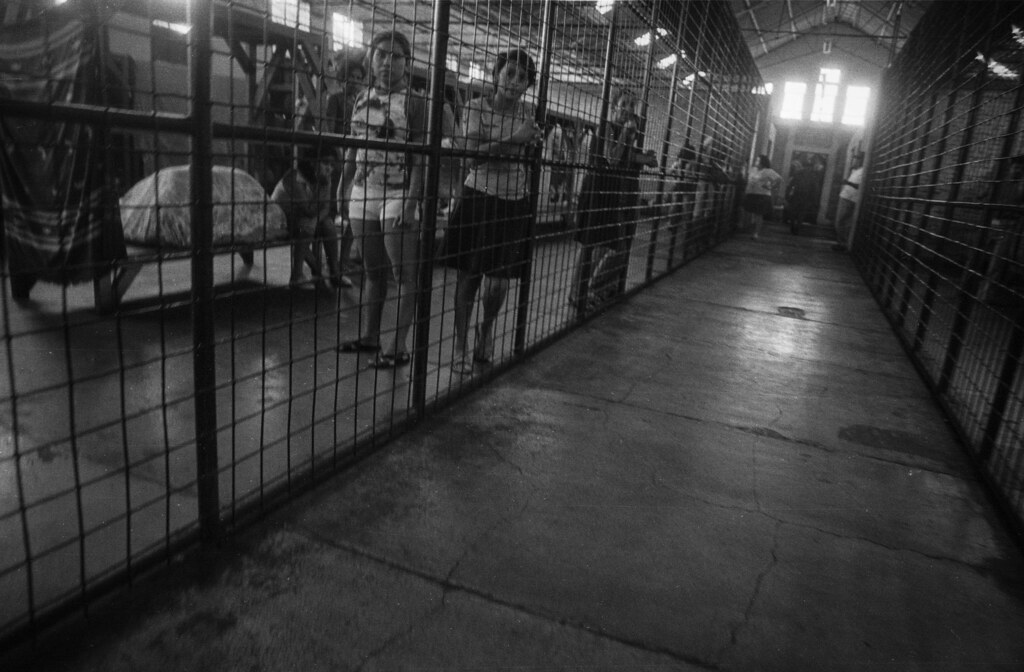
Common Prisoners, Managua, Nicaragua 78 -3: photo by Marcelo Montecino, 17 December 2016
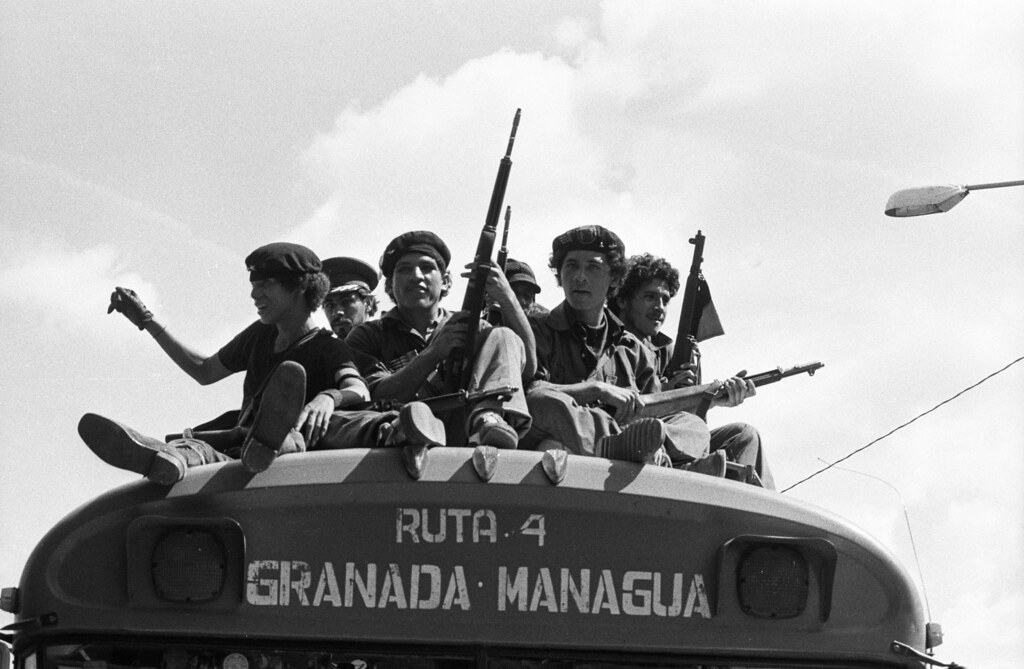
Sandinistas entering, Managua, Nicaragua - 1979: photo by Marcelo Montecino, 16 October 2013
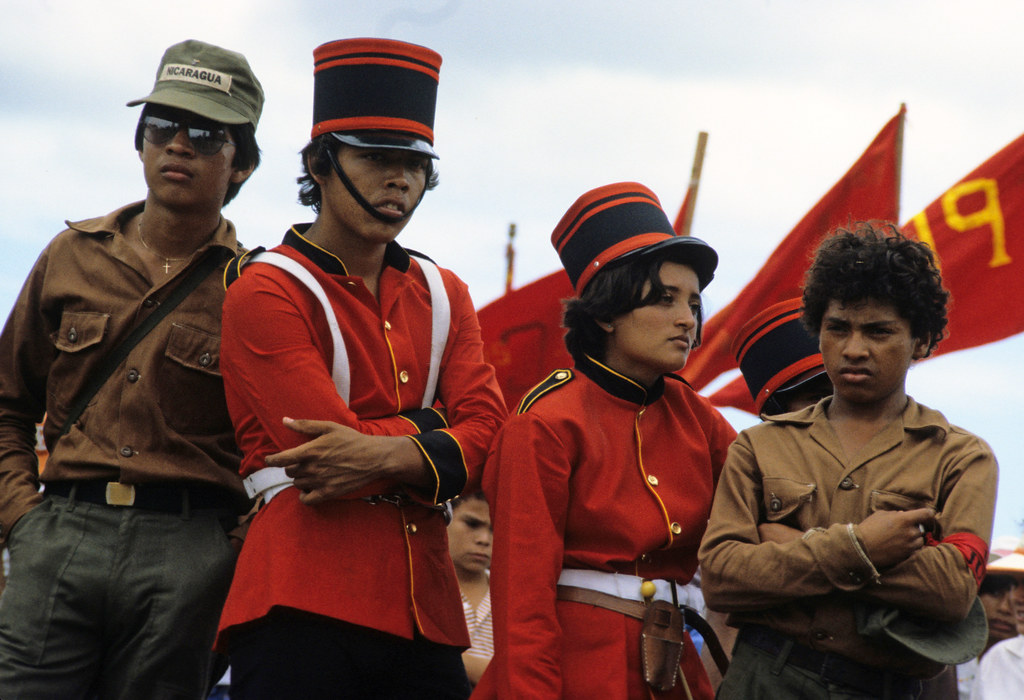
Managua, Nicaragua, 2nd anniversary of revolution, 1981: photo by Marcelo Montecino, 24 October 2013

Morning, Santiago, Chile, 1994: photo by Marcelo Montecino, 31 January 2011
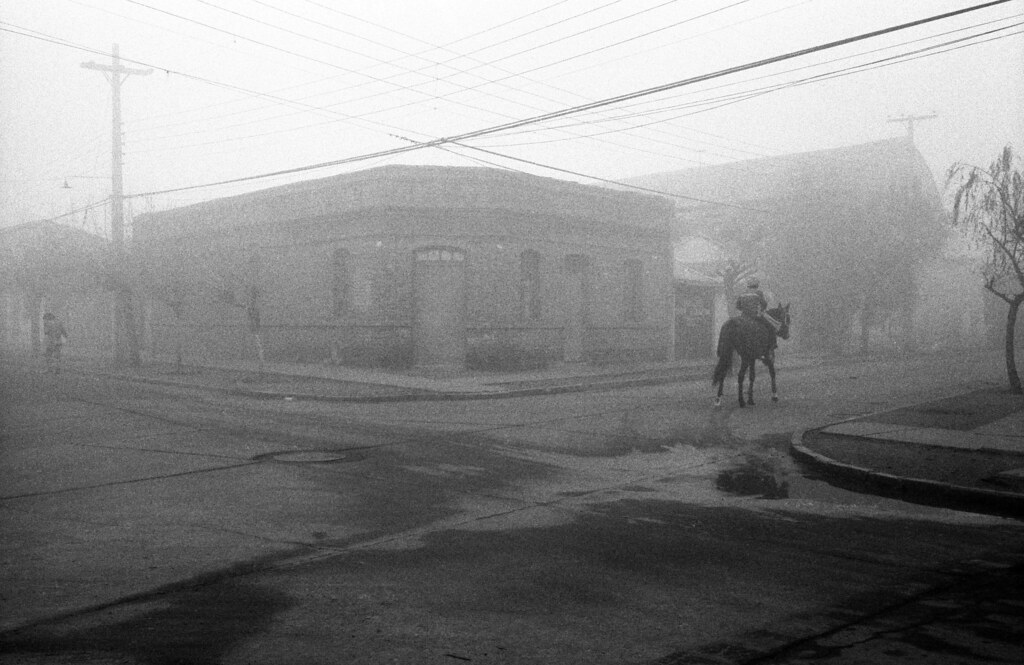
Barrio Vivaceta, Santiago 1988 -6: photo by Marcelo Montecino, 16 May 2015
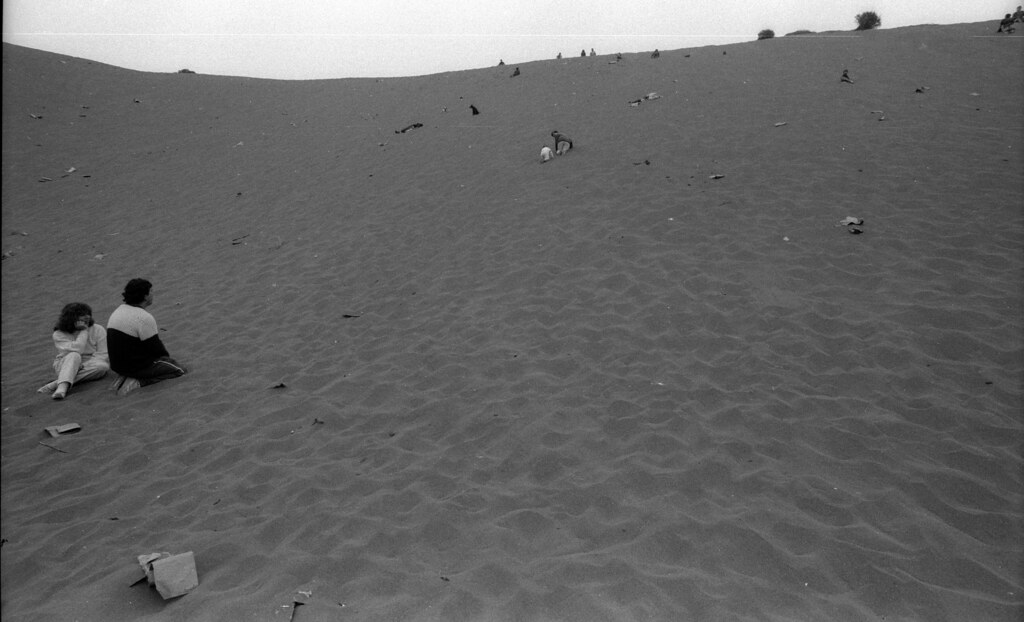
The dune, San Sebastian, Chile, 1994: photo by Marcelo Montecino, 20 December 2011
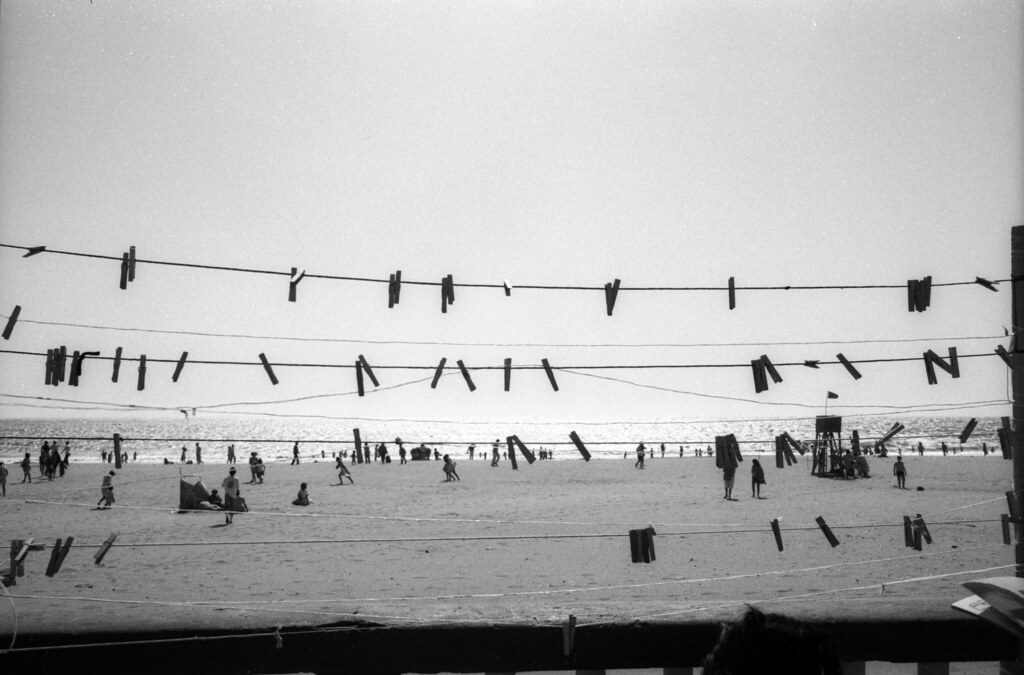
Notes, Cartagena, Chile 92: photo by Marcelo Montecino, 28 May 2005
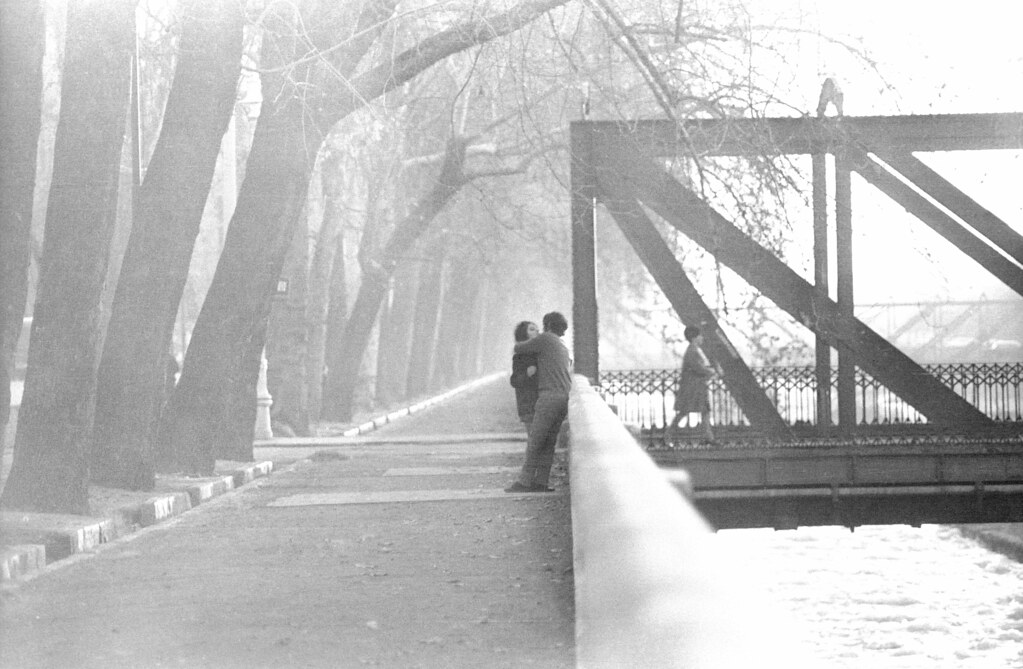
The Kiss by the Mapocho, Santiago, Chile 1964: photo by Marcelo Montecino, 10 June 2011
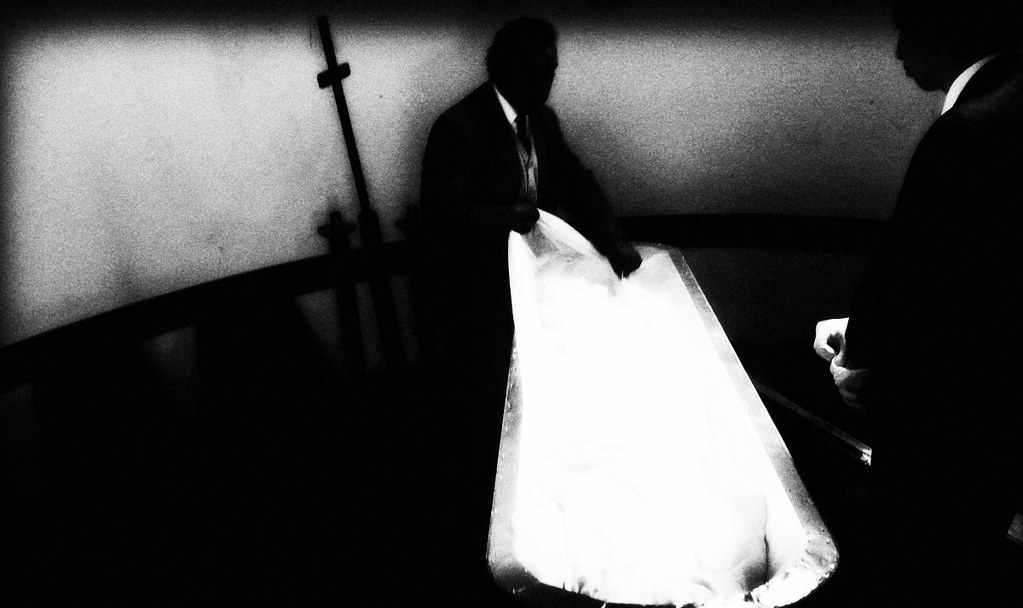

Santiago, Chile 94: photo by Marcelo Montecino, 20 June 2016


The Kiss by the Mapocho, Santiago, Chile 1964: photo by Marcelo Montecino, 10 June 2011


Santiago, Chile 94: photo by Marcelo Montecino, 20 June 2016

Untitled, Santiago 88: photo by Marcelo Montecino, 12 May 2015
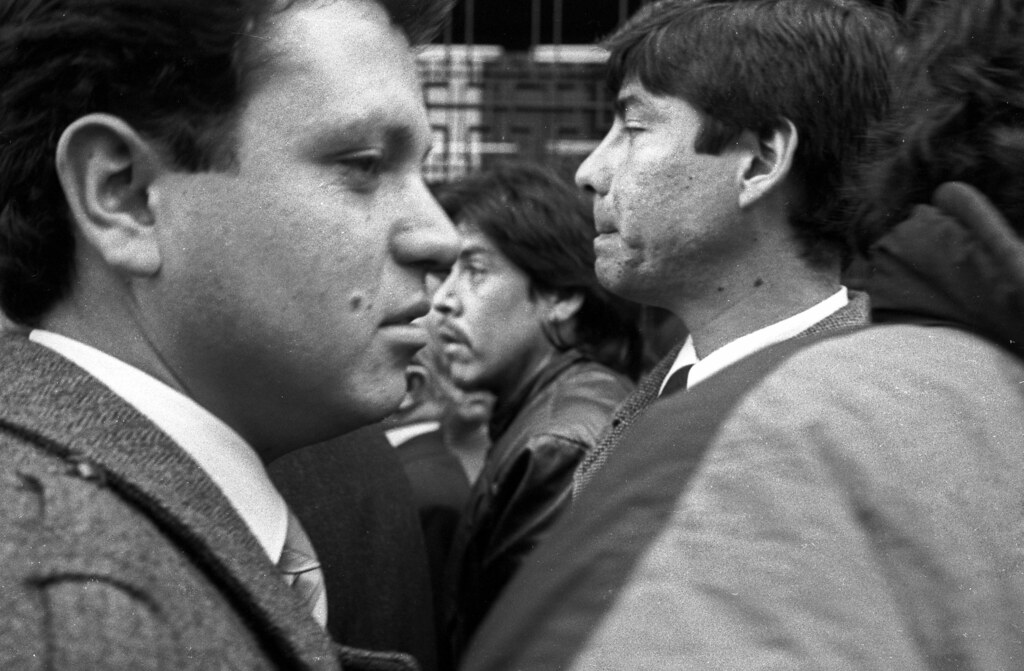
Downtown Santiago, Chile: photo by Marcelo Montecino, 14 September 2014
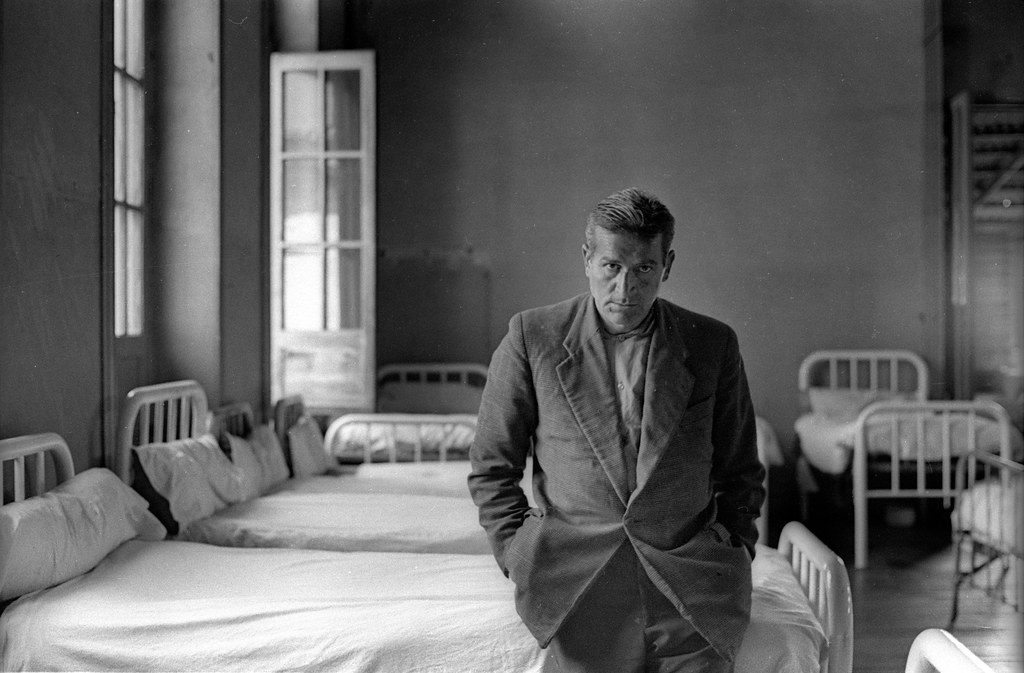
Psychiatric clinic, Santiago, 1973: photo by Marcelo Montecino, 8 February 2014
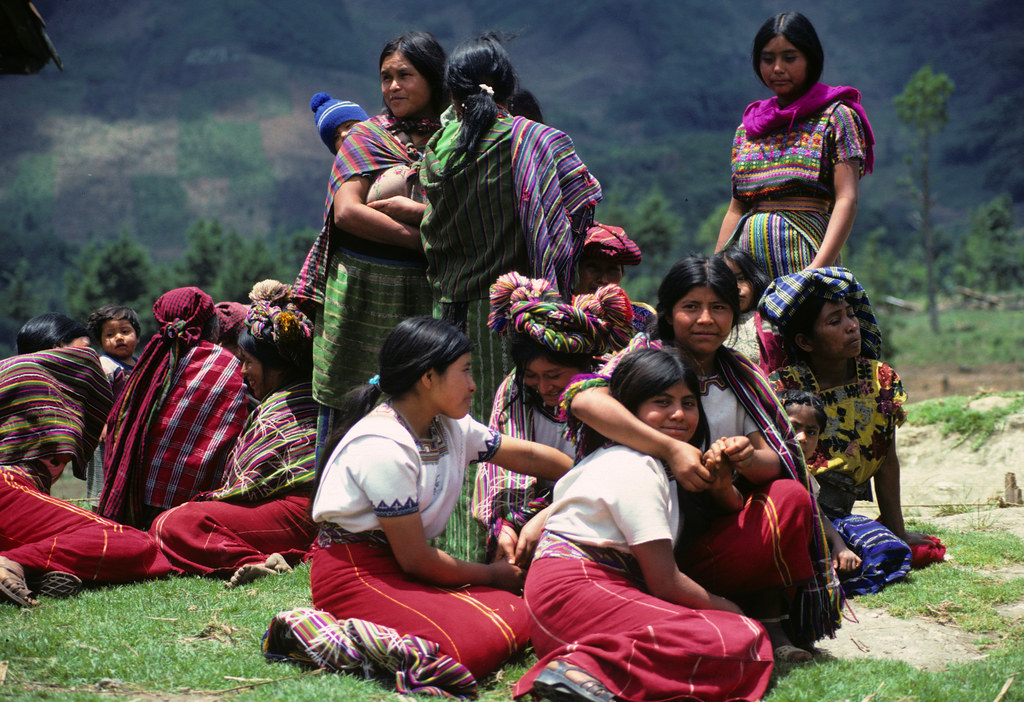
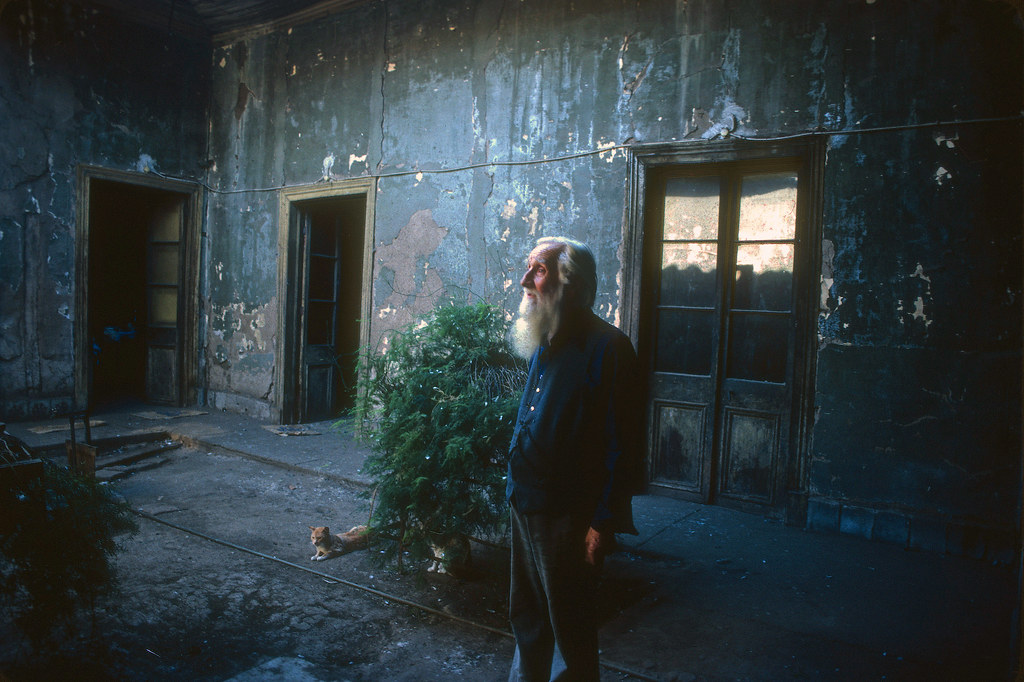
Clotario Blest, trade unionist and human rights activist, 1983: photo by Marcelo Montecino, 13 April 2013
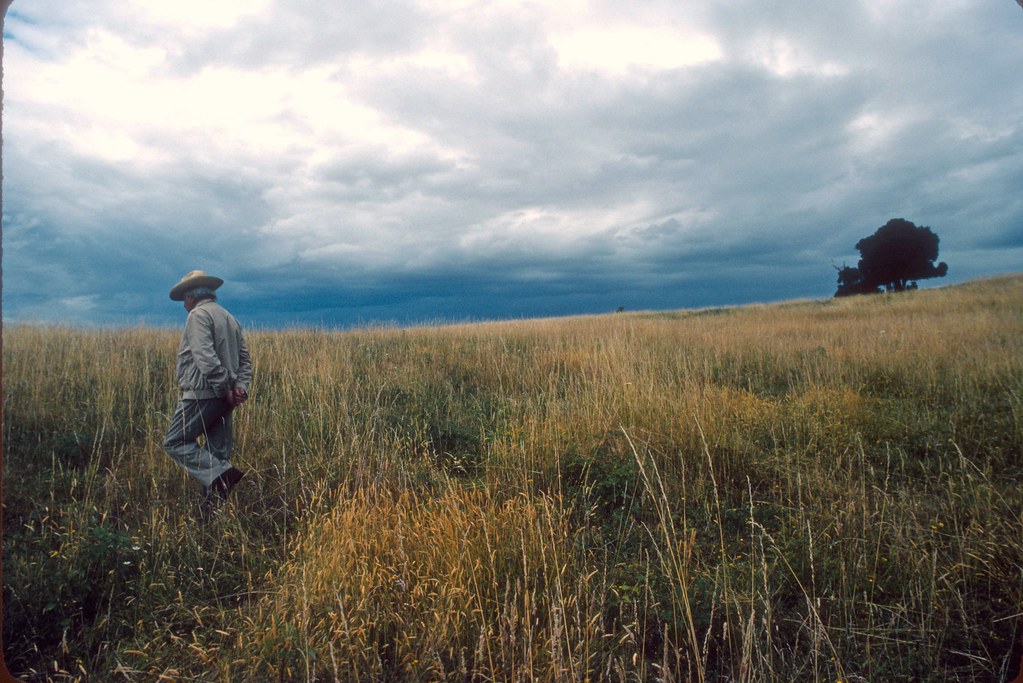
Sergio Montecino, Osorno, Chile, 1986 - -89 -130: photo by Marcelo Montecino, 28 October 2014
Drones, Maduro, Caracas, 2018
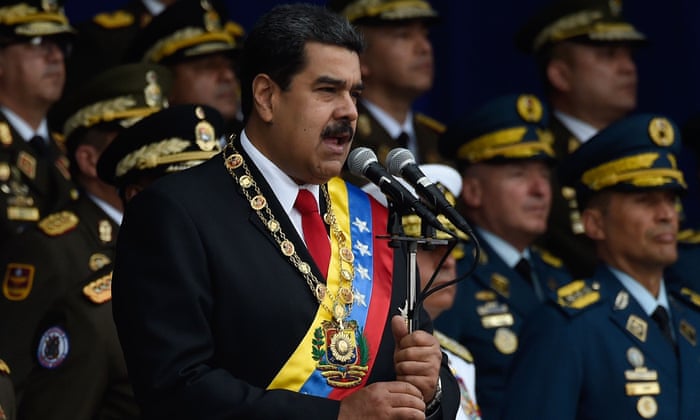
Venezuelan president Nicolás Maduro speaking in Caracas shortly before the attack.: photo by Juan Barreto/AFP/Getty, 4 August 2018
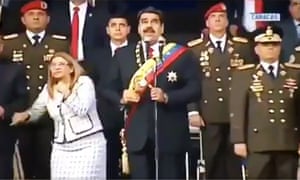
Venezuelan president Nicolás Maduro comes under drone attack while speaking in Caracas.: image via the Guardian, 4 August 2018
Venezuelan president Nicolás Maduro survives drone assassination attempt: President blames Colombia after aerial devices appeared to explode while he was making a speech to troops in Caracas: The Guardian, Sat 4 Aug 2018 21.33 EDT
Chaos
has struck Venezuela following an apparent foiled assassination attempt
against the country’s embattled president, Nicolás Maduro.
Several drones armed with explosives were flown towards Maduro as he addressed a military parade in the capital Caracas on Saturday afternoon.
The drones did not reach Maduro, though it is not clear if they were shot down or exploded prematurely. The president survived unharmed while seven people were injured in the attack, the country’s information minister said.
Jorge Rodríguez said “the investigation clearly reveals [the explosions] came from drone-like devices that carried explosives”.
Maduro, speaking from the presidential palace two hours after the attack, announced that those behind the attempt on his life had been captured.
“I am alive and victorious,” the socialist president said in a bellicose televised address, before blaming the attack on the government of neighbouring Colombia.
“Everything points to the Venezuelan ultra-right in alliance with the Colombian ultra-right, and that the name of [Colombian president] Juan Manuel Santos is behind this attack.”
A spokesperson for Santos – who leaves office on Tuesday – quickly shot the allegations down. “This has no base,” the official said. “The president is focused on the baptism of his granddaughter and not on bringing down foreign governments.”
The two presidents have often sparred, with Santos regularly labelling his Venezuelan counterpart a dictator who is leading his country into economic and political turmoil.
No one has claimed responsibility for the alleged assassination attempt outright, though one group – Soldiers Franelas – suggested involvement in a tweet.
“We have shown [the government] is vulnerable,” the group, whose members are not known, said. “[The attack] wasn’t achieved today but it is just a matter of time [until it is].”
The panic was captured during a live broadcast of the parade and speech, with Maduro and other officials looking to the sky from the podium while talking about the economy.
Several drones armed with explosives were flown towards Maduro as he addressed a military parade in the capital Caracas on Saturday afternoon.
The drones did not reach Maduro, though it is not clear if they were shot down or exploded prematurely. The president survived unharmed while seven people were injured in the attack, the country’s information minister said.
Jorge Rodríguez said “the investigation clearly reveals [the explosions] came from drone-like devices that carried explosives”.
Maduro, speaking from the presidential palace two hours after the attack, announced that those behind the attempt on his life had been captured.
“I am alive and victorious,” the socialist president said in a bellicose televised address, before blaming the attack on the government of neighbouring Colombia.
“Everything points to the Venezuelan ultra-right in alliance with the Colombian ultra-right, and that the name of [Colombian president] Juan Manuel Santos is behind this attack.”
A spokesperson for Santos – who leaves office on Tuesday – quickly shot the allegations down. “This has no base,” the official said. “The president is focused on the baptism of his granddaughter and not on bringing down foreign governments.”
The two presidents have often sparred, with Santos regularly labelling his Venezuelan counterpart a dictator who is leading his country into economic and political turmoil.
No one has claimed responsibility for the alleged assassination attempt outright, though one group – Soldiers Franelas – suggested involvement in a tweet.
“We have shown [the government] is vulnerable,” the group, whose members are not known, said. “[The attack] wasn’t achieved today but it is just a matter of time [until it is].”
The panic was captured during a live broadcast of the parade and speech, with Maduro and other officials looking to the sky from the podium while talking about the economy.
Loud bangs could be heard in the background. The audio then went out and the camera panned to scores of soldiers hurriedly scattering from formation, before the broadcast was abruptly cut.
Carlos Julio Rojas lives one block from the Avenida Bolivar, the central highway where the parade was taking place.
“I heard two explosions,” he said. “I felt the walls of my house tremble and saw the soldiers run to the other side [of the street].”
Rojas added that military presence around the city centre has been ramped up since the incident.
Another eyewitness, who asked not to be named, was filming the chaos on his phone from outside the event’s picket barrier.
“I started recording with my phone what was happening around me … people running around … and a member of the National Guard approached me, took my phone and deleted the video,” the middle-aged man said.
Members of the media covering the event are said to have been detained, with one Associated Press photographer released hours after the chaos ensued, according to Crónica Uno, a local website.
Firefighters at the scene are disputing the government’s claim that the incident was an attack on Maduro’s life, claiming that it was instead caused by a simple gas tank explosion in a nearby apartment, the Associated Press reported.
Some Venezuela experts on social media are raising similar suspicions. “The official ‘investigation’ of today’s alleged assassination attempt against president Maduro takes the usual course: begin with the conclusions and work backwards,” Phil Gunson, a consultant with the non-profit Crisis Group, tweeted. “In a country where 98% of crime goes unpunished, government sleuths resolve this kind of case in a matter of hours.”
Venezuela, which has the largest proven oil reserves on the planet, has been mired in economic and political turmoil for several years, triggered by low oil prices. The International Monetary Fund predicts inflation to reach 1m per cent by the end of the year, while shortages in basic goods and medicines are widespread
Maduro replaced socialist former president Hugo Chávez after his death from cancer in 2013. The former bus driver has moved to stamp out dissent, with recent anti-government demonstrations leaving more than 100 people killed. In July last year, he sidelined the opposition-led Congress and installed a new body stacked with loyalists.
He won a new six-year term in May but his main rivals disavowed the election and alleged massive irregularities.
Last year, rogue police officer Óscar Pérez hijacked a helicopter and fired at government buildings in what he said was an action against a dictator. Pérez was hunted down and killed by Venezuelan forces.
Associated Press and Reuters contributed to this report.
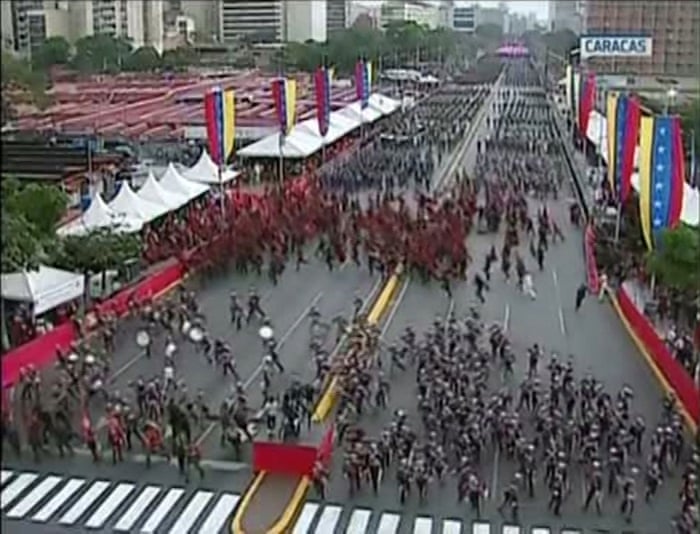
Soldiers scatter in Caracas after explosions during an address by president Nicolás Maduro.: photo by HO/AFP/Getty Images, 4 August 2018
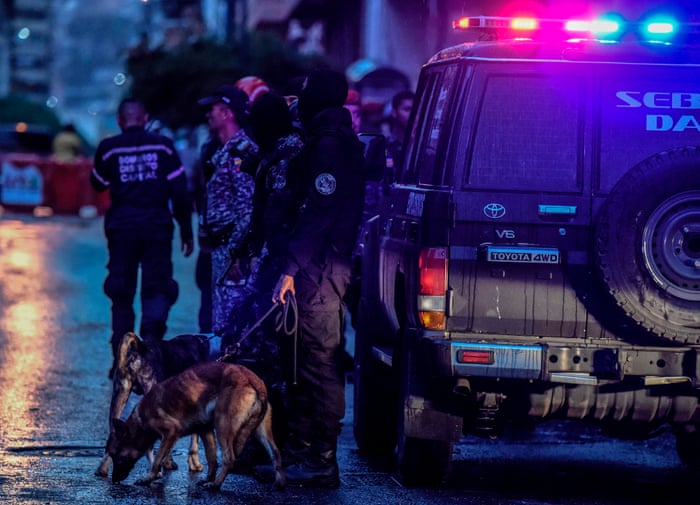
Security is tightened following the blasts.: photo by Juan Barreto/AFP/Getty Images, 4 August 2018
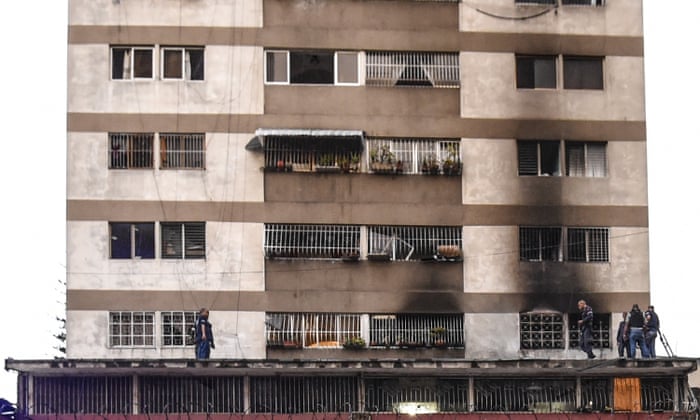
Security forces check a nearby building.: photo by Anadolu Agency/Getty Images, 4 August 2018
Investigators search for evidence after the explosions.: photo by Miguel Gutierrez/EPA, 5 August 2018
Venezuela’s
president, Nicolás Maduro, survived an apparent and – if true –
audacious assassination attempt on Saturday when, according to official
reports, drones loaded with explosives flew
towards the president while he was speaking at a military parade in the
capital Caracas.
But many are now wondering: who could have been behind the attack?
Foreign powers
According to Maduro, the plot was concocted by an international cabal
of rightwing schemers. He claimed that the Colombian president, Juan
Manuel Santos, was “behind the attack”, supported by a network of
plotters and financiers based in Florida, adding that a group of hired
assassins had already been captured.
Maduro, whose country is mired so deep in economic and political
turmoil that inflation is predicted to reach 1m per cent this year, has
long accused the international community of waging economic war on him.
He regularly lambasts the US as “imperialist” and out to destroy
socialism while taking over Venezuela’s oil – of which it has the
largest reserves in the world.
The opposition within Venezuela is also a regular target. Maduro claims it wants to undo the social
reforms brought about by previous president Hugo Chávez, the charismatic
revolutionary who died in 2013. Maduro has jailed and sidelined many
opposition activists, regularly accusing them of plotting to overthrow
him.
It is this conspiracy that Maduro claims will be unearthed in an ongoing investigation.
Rightwing rebels
No one has claimed responsibility for the alleged assassination
attempt outright, though one group – Soldiers Franelas – suggested
involvement in a tweet. “We have shown [the government] is vulnerable,”
the group, whose members are not known, said. “[The attack] wasn’t
achieved today but it is just a matter of time [until it is].” Little is
known about Soldiers Franelas beyond their Twitter presence, where the
group regularly posts anti-Maduro missives.
Saturday’s episode reminded many in Venezuela of a similar incident last year when Óscar Pérez, a rogue police officer, launched grenades from a stolen helicopter at government buildings in Caracas. Pérez was killed in a shootout six months later. Some analysts suspect Soldiers Franelas of involvement in that similarly curious incident.
It’s a hoax
Some observers are suspicious of Maduro’s account of events, which
seems a little too neat in a country where the government has long
twisted the truth to its own ends.
“The official ‘investigation’ of today’s alleged assassination
attempt against president Maduro takes the usual course: begin with the
conclusions and work backwards,” Phil Gunson, a consultant with
non-profit Crisis Group, tweeted on Saturday evening. “In a country
where 98% of crime goes unpunished, government sleuths resolve this kind
of case in a matter of hours.”
Firefighters interviewed by the Associated Press, meanwhile, claim
that the bangs heard were caused by a gas tank explosion in a nearby
apartment, rather than the drones. Some local journalists have backed up
the claim, posting photos on Twitter of smoke billowing from the
Residancias Don Eduardo apartment building on the street where the
attack took place.
David Smilde, a senior fellow at the Washington Office on Latin
America, voiced doubts that the incident was a staged attack. In an
interview with AP, he claimed footage of the chaotic scenes at the
parade – which for a short while were broadcast to the nation before
being abruptly cut off – made Maduro look weak. But Smilde said the
embattled president will still likely use the attack to cement his
power.
“He will use it to concentrate power, whoever did this,” Smilde said.
“He’ll use it to further restrict liberty and purge the government and
armed forces.”
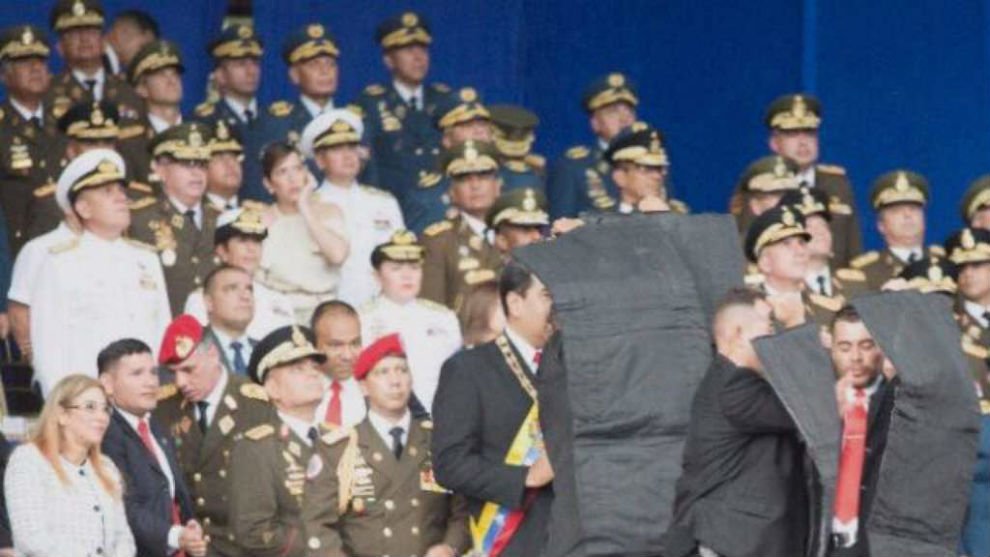
Imágenes en la que es sacado el presidente Maduro del balcón presidencial en la av. Bolívar de Caracas. Gobierno asegura que explosión en acto de la GNB fue un atentado contra el Jefe de Estado. Reportan 7 efectivos militares heridos Fotos: Agencia Xinhua: image via NTN24 Venezuela @NTN24ve, 4 August 2018
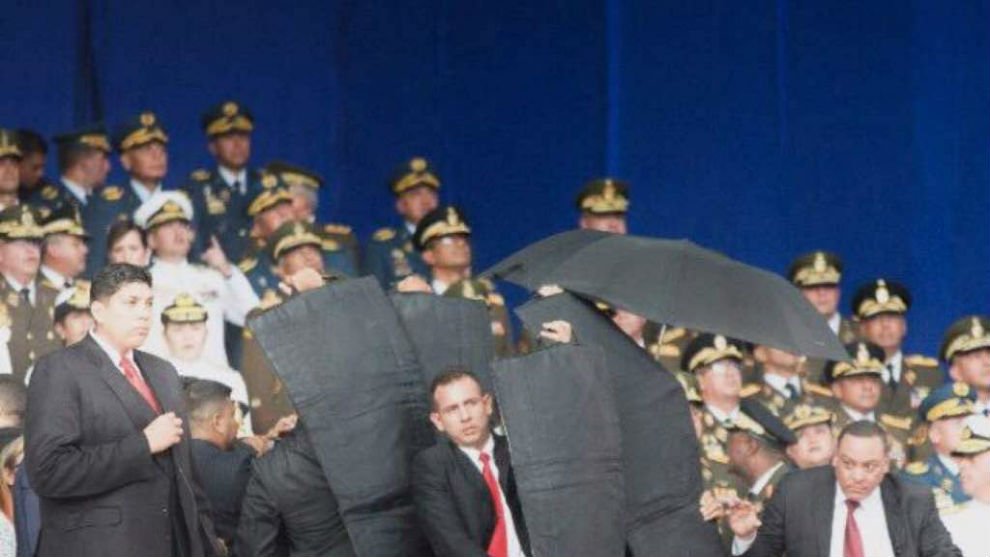
Imágenes en la que es sacado el presidente Maduro del balcón presidencial en la av. Bolívar de Caracas. Gobierno asegura que explosión en acto de la GNB fue un atentado contra el Jefe de Estado. Reportan 7 efectivos militares heridos Fotos: Agencia Xinhua: image via NTN24 Venezuela @NTN24ve, 4 August 2018
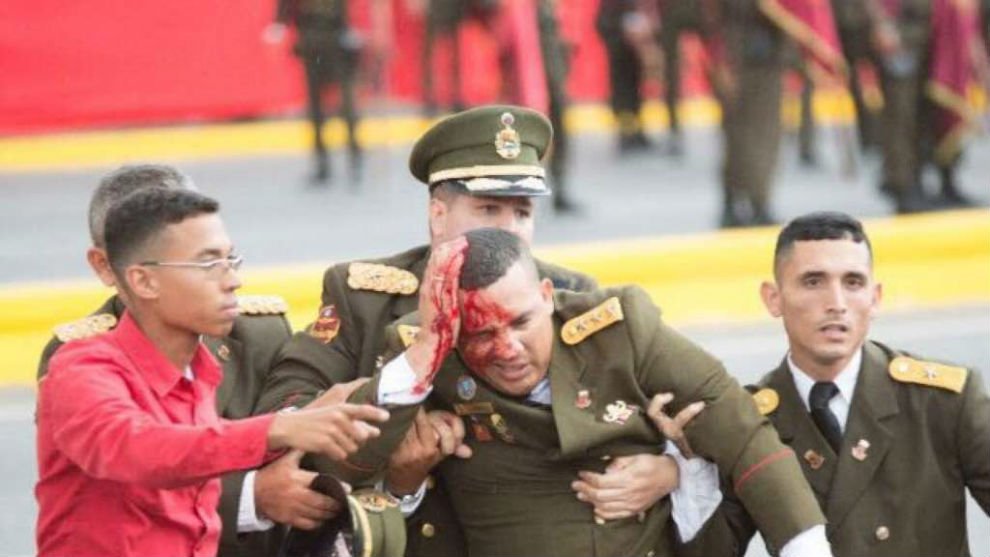
Imágenes en la que es sacado el presidente Maduro del balcón presidencial en la av. Bolívar de Caracas. Gobierno asegura que explosión en acto de la GNB fue un atentado contra el Jefe de Estado. Reportan 7 efectivos militares heridos Fotos: Agencia Xinhua: image via NTN24 Venezuela @NTN24ve, 4 August 2018
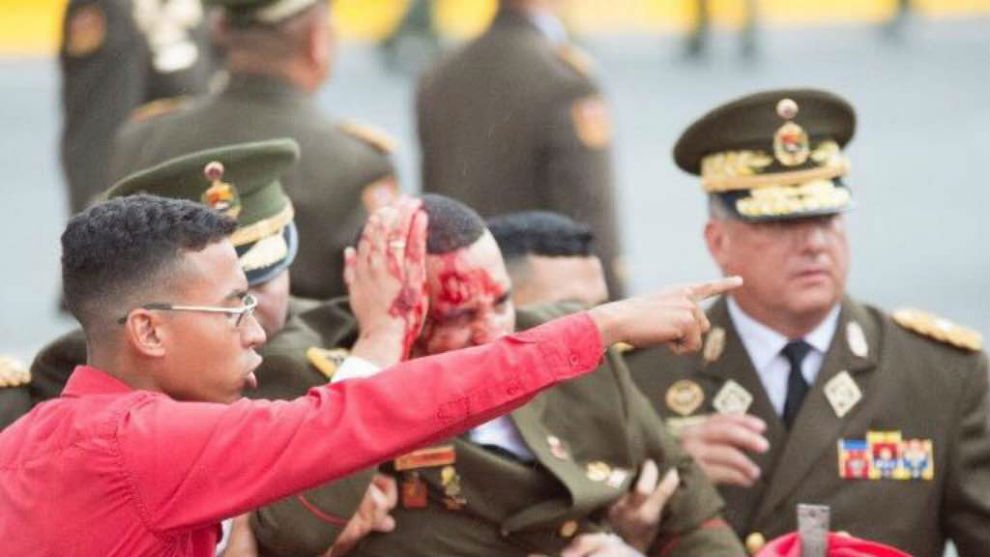
Imágenes en la que es sacado el presidente Maduro del balcón presidencial en la av. Bolívar de Caracas. Gobierno asegura que explosión en acto de la GNB fue un atentado contra el Jefe de Estado. Reportan 7 efectivos militares heridos Fotos: Agencia Xinhua: image via NTN24 Venezuela @NTN24ve, 4 August 2018
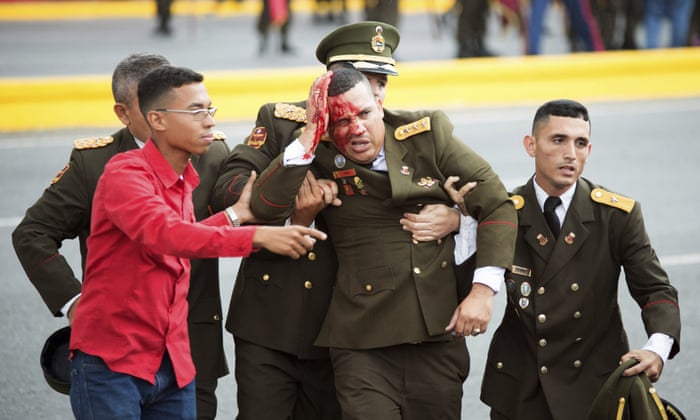
An injured soldier being helped following the explosions.: photo by Xinhua/AP, 4 August 2018
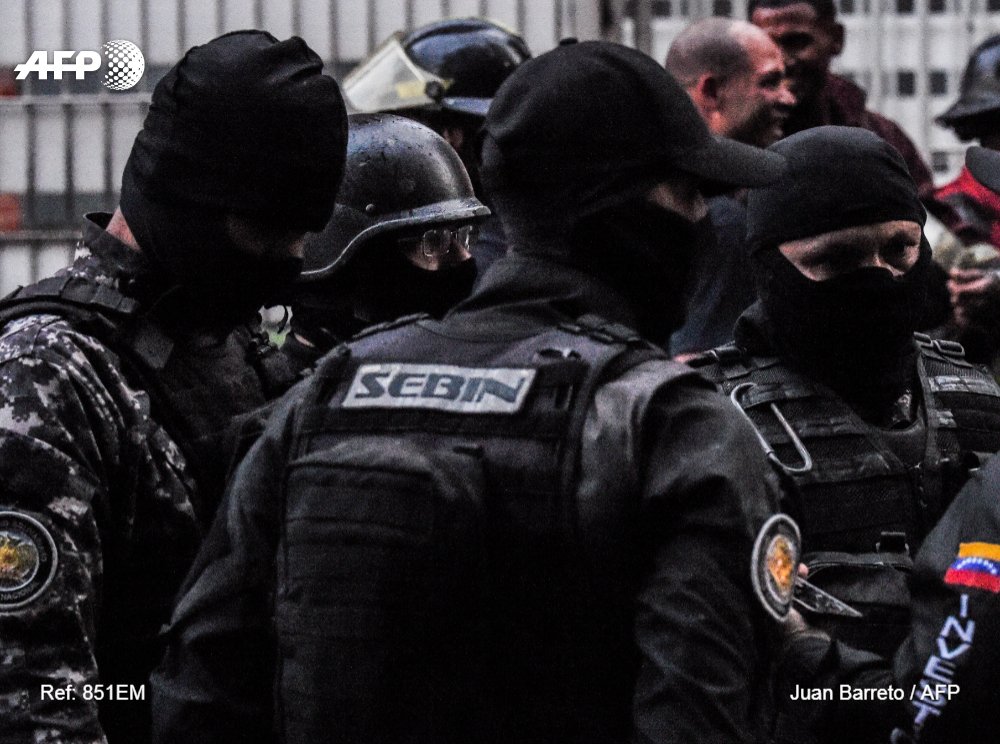
#UPDATE Venezuelan President Nicolas Maduro escapes an ‘attack’ when multiple drones carrying explosives detonate near him during a military ceremony, but seven soldiers are wounded: image via AFP news agency @AFP, 4 August 2018
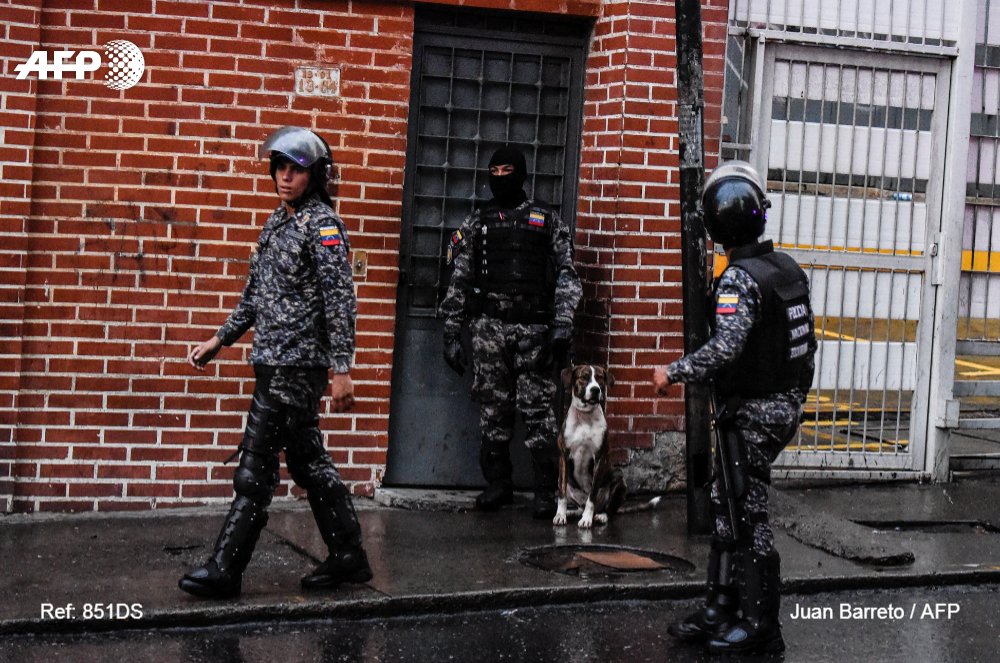
#UPDATE #UPDATE Venezuelan President Maduro says he escaped an ‘assassination’ attempt using an explosive-laden drone, and accuses neighboring Colombia and unidentified ‘financiers’ in the US: image via AFP news agency @AFP, 4 August 2018
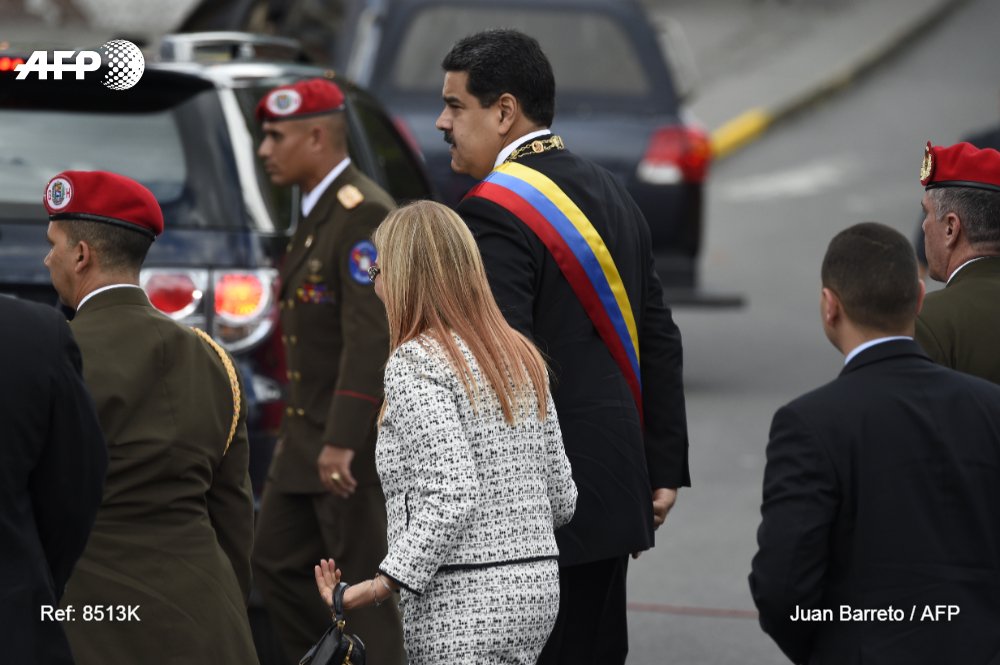
#UPDATE #UPDATE Venezuelan President Maduro says he escaped an ‘assassination’ attempt using an explosive-laden drone, and accuses neighboring Colombia and unidentified ‘financiers’ in the US: image via AFP news agency @AFP, 4 August 2018
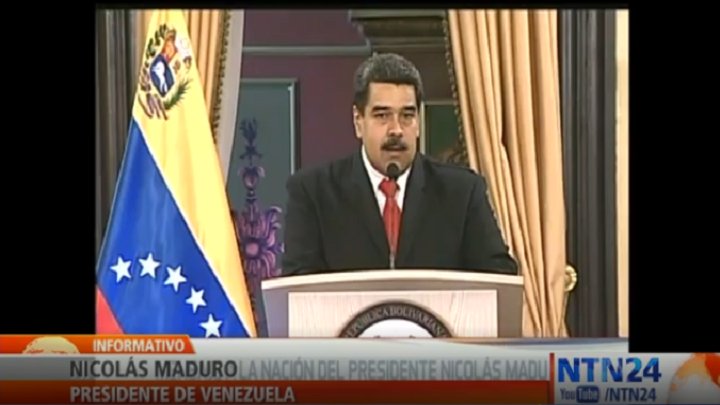
#ENVIVO: | "Todo apunta a la ultraderecha venezolana en alianza con la ultraderecha colombiana y que el nombre de Juan Manuel Santos está detrás de este atentado": Nicolás Maduro sobre el supuesto atentado en su contra: image via AFP news agency @AFP, 4 August 2018
the dead land
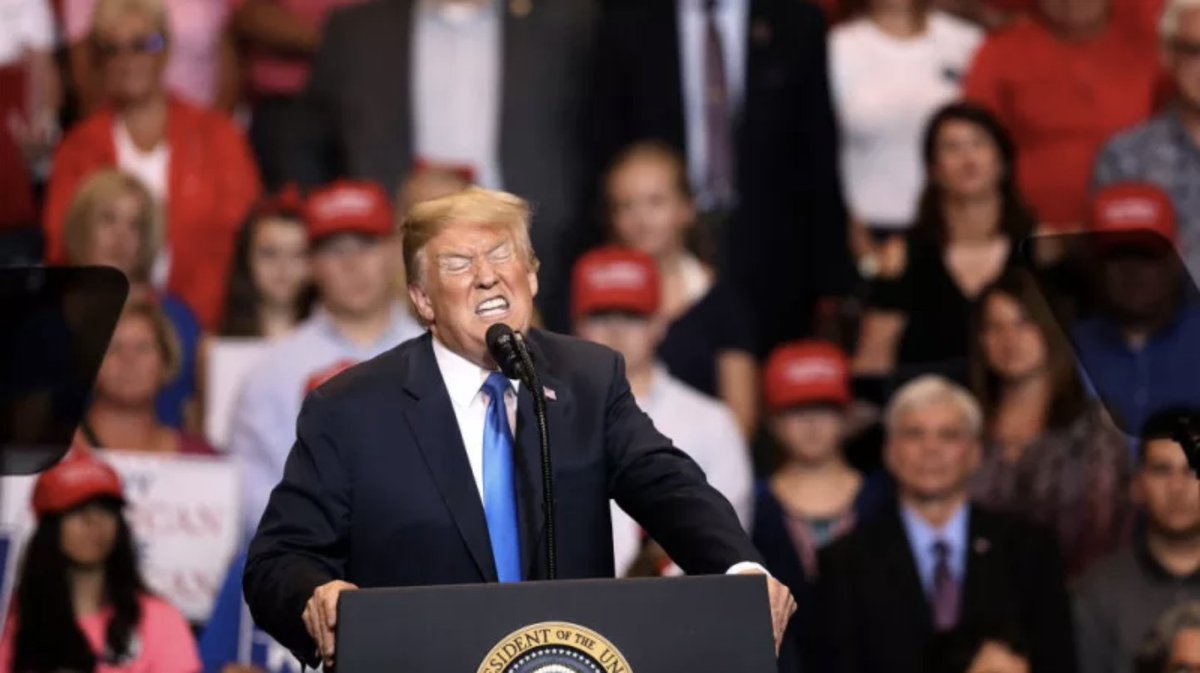
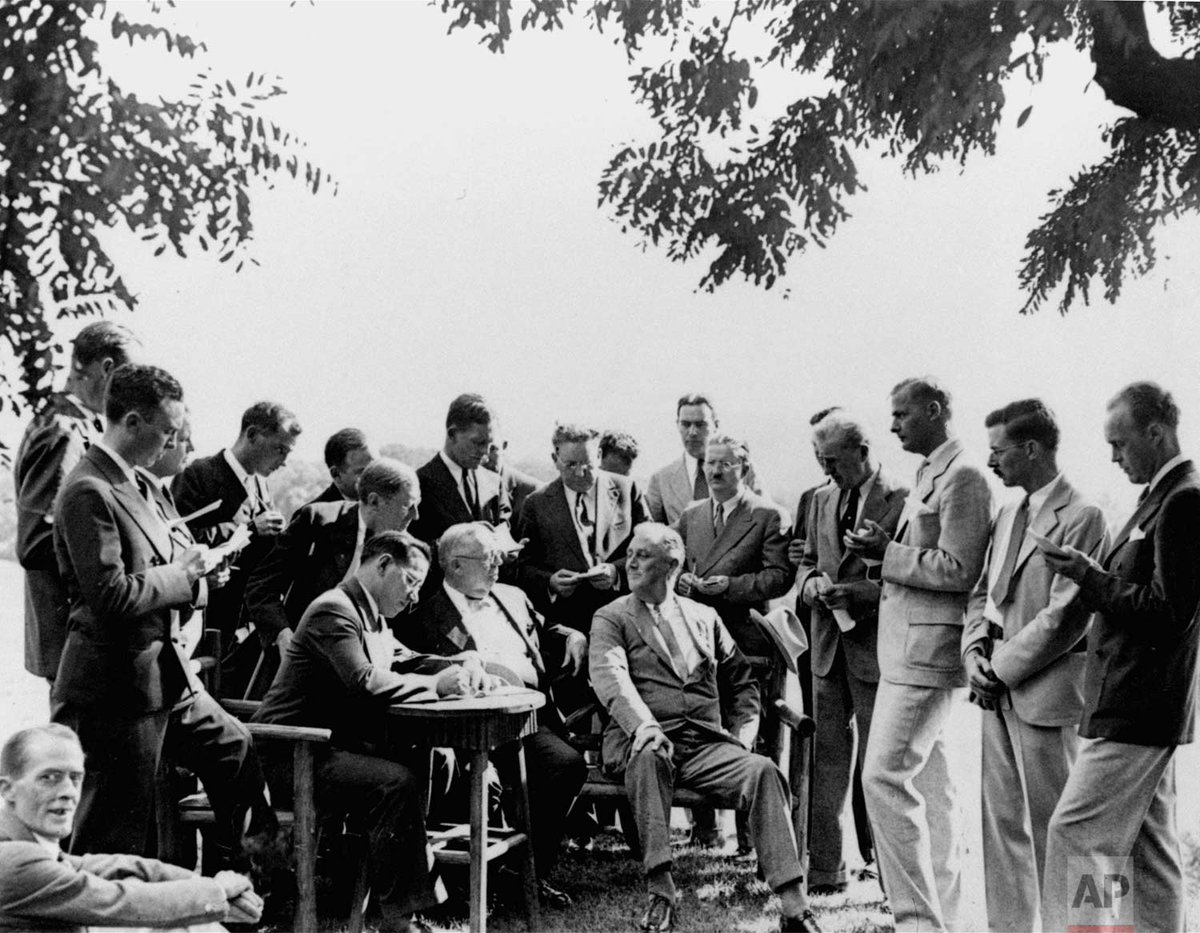
Journalists stand around President Franklin D. Roosevelt, #OTD in 1933, during one of the daily press conferences held on the lawn of his estate at Hyde Park, N.Y. where the chief executive is vacationing.: image via AP Images @AP_Images, 4 August 2018
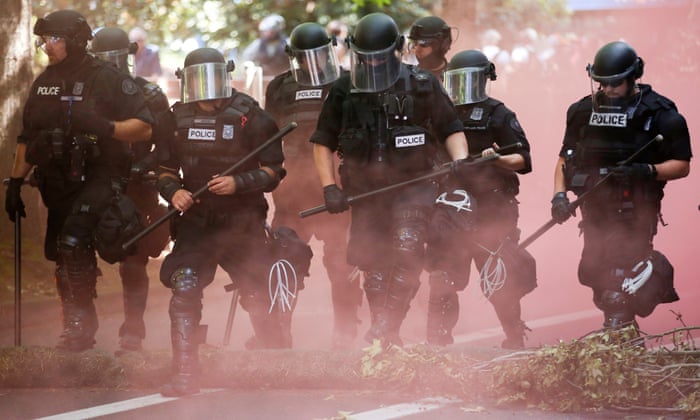
Portland police confront anti-fascists during a rally in Portland, Oregon on Saturday.: photo by Terray Sylvester for the Guardian, 4 August 2018
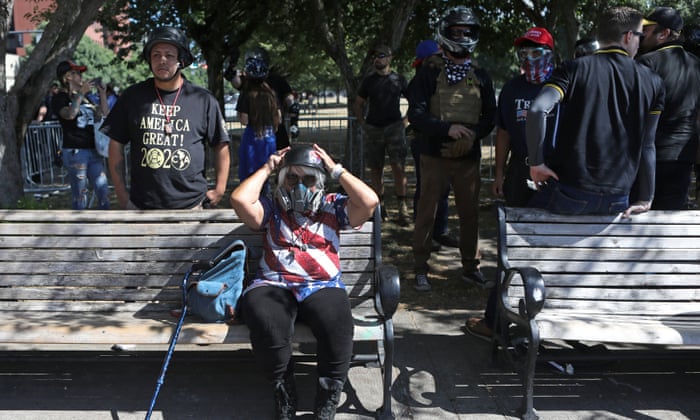
Members of the right-wing Patriot Prayer group gather before a rally in Portland, Oregon, US August 4, 2018: photo by Jim Urquhart/Reuters, 4 August 2018
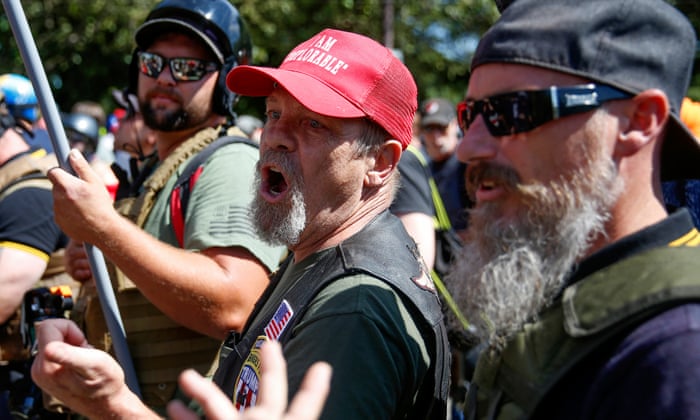
Supporters of the far-right group Patriot Prayer in Portland.: photo by Terray Sylvester for the Guardian, 4 August 2018
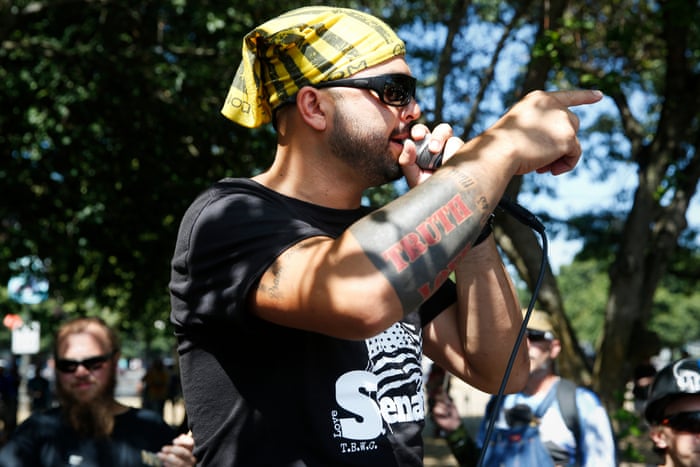
US Senate candidate Joey Gibson speaks at a rally in Portland, Oregon.: photo by Terray Sylvester for the Guardian, 4 August 2018
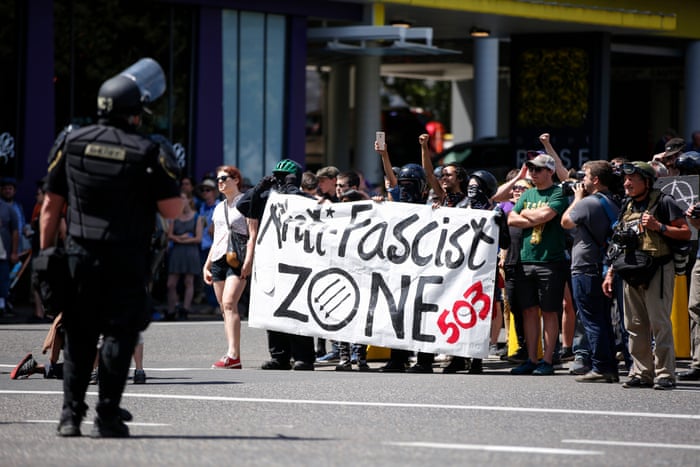
Counterprotesters march in opposition to a rally organized by the far-right group Patriot Prayer in Portland, Oregon.: photo by Terray Sylvester for the Guardian, 4 August 2018
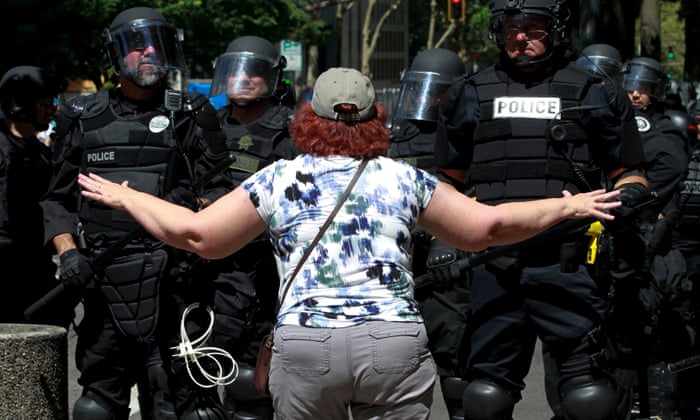
A counterprotester argues with police in Portland, Oregon: photo by Bob Strong/Reuters, 4 August 2018
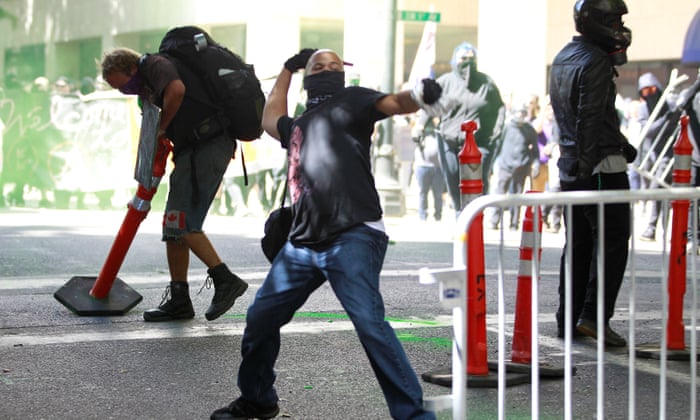
A counterprotester throws an object towards police in Portland.: photo by Bob Strong/Reuters, 4 August 2018
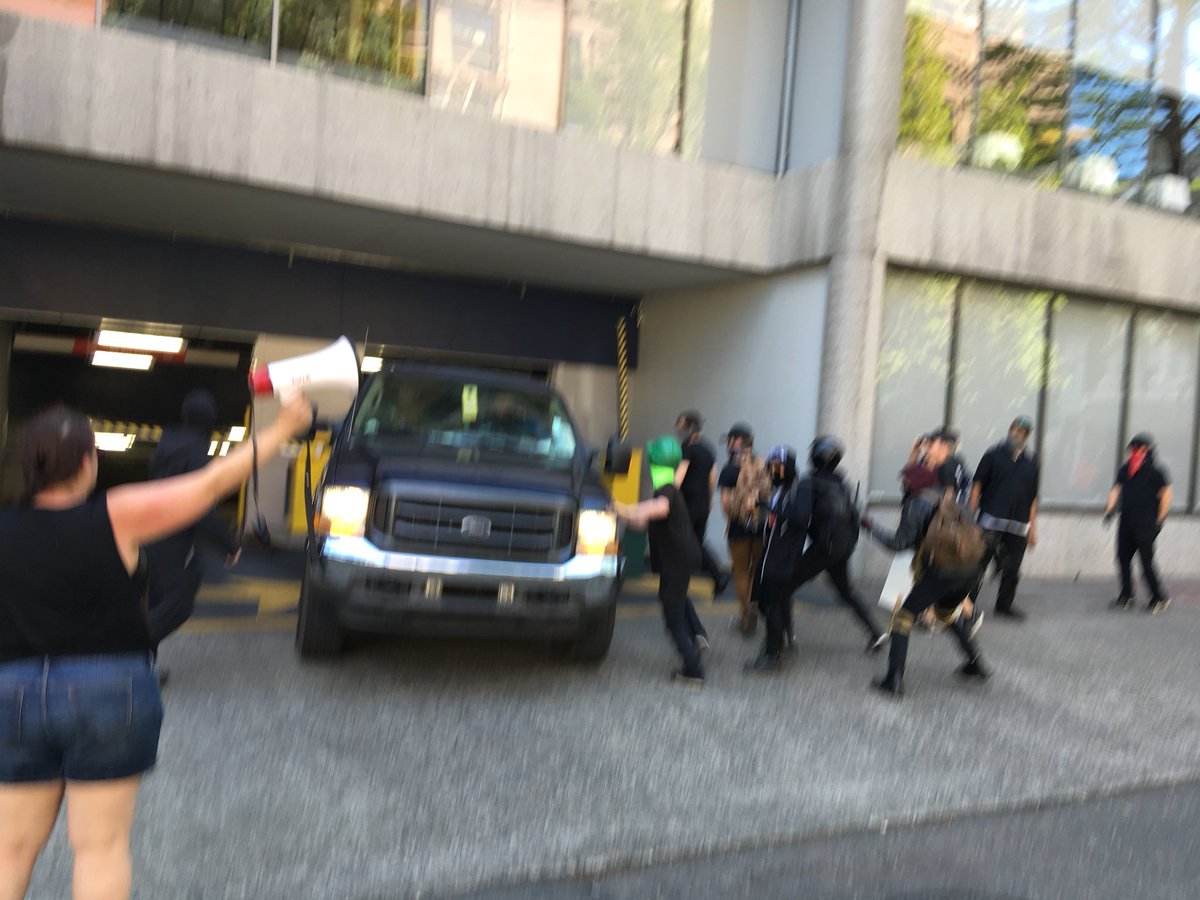
Proud Boys in a truck just sprayed bear mace at antifa blocking their way, leaving a street full of coughing, tearing people behind.: image via Brendan O'Connor @grendan, 4 August 2018
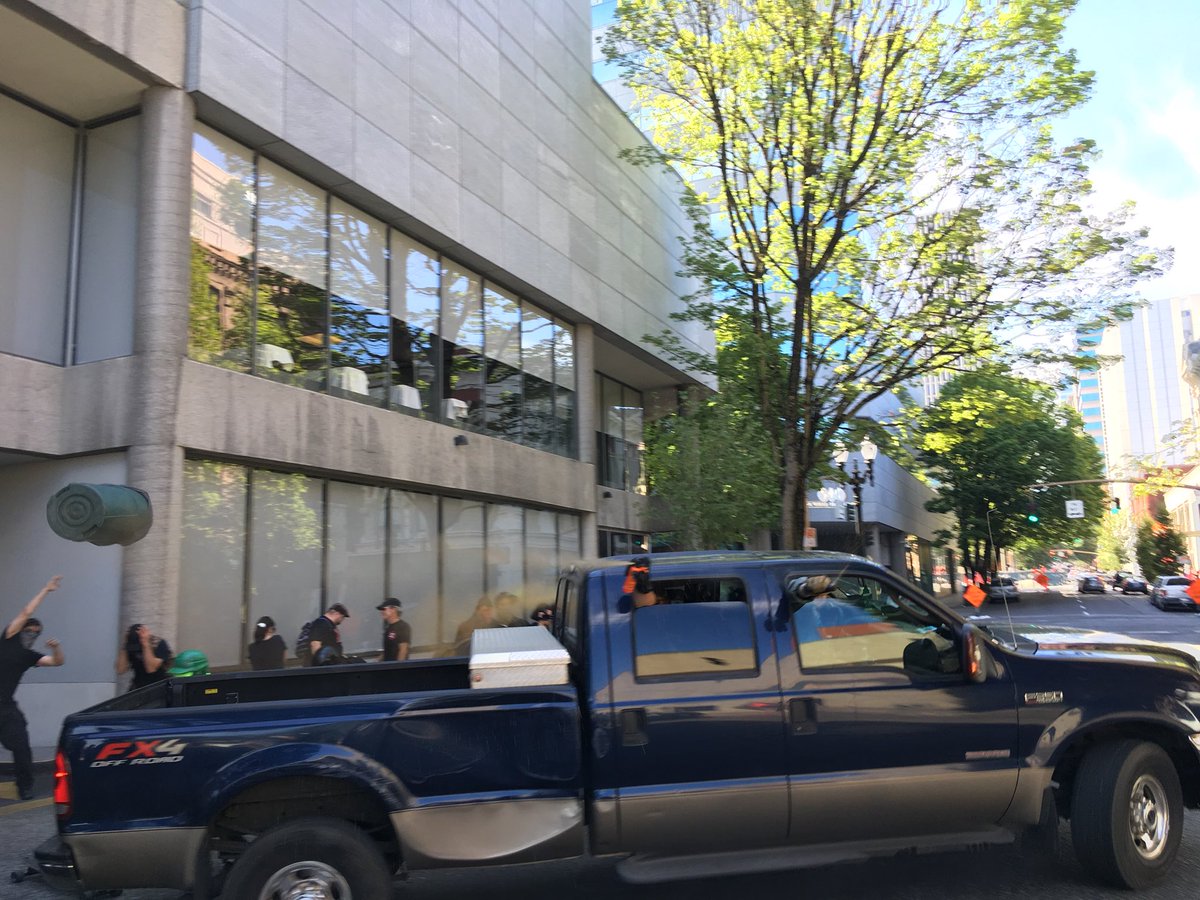
Proud Boys in a truck just sprayed bear mace at antifa blocking their way, leaving a street full of coughing, tearing people behind.: image via Brendan O'Connor @grendan, 4 August 2018
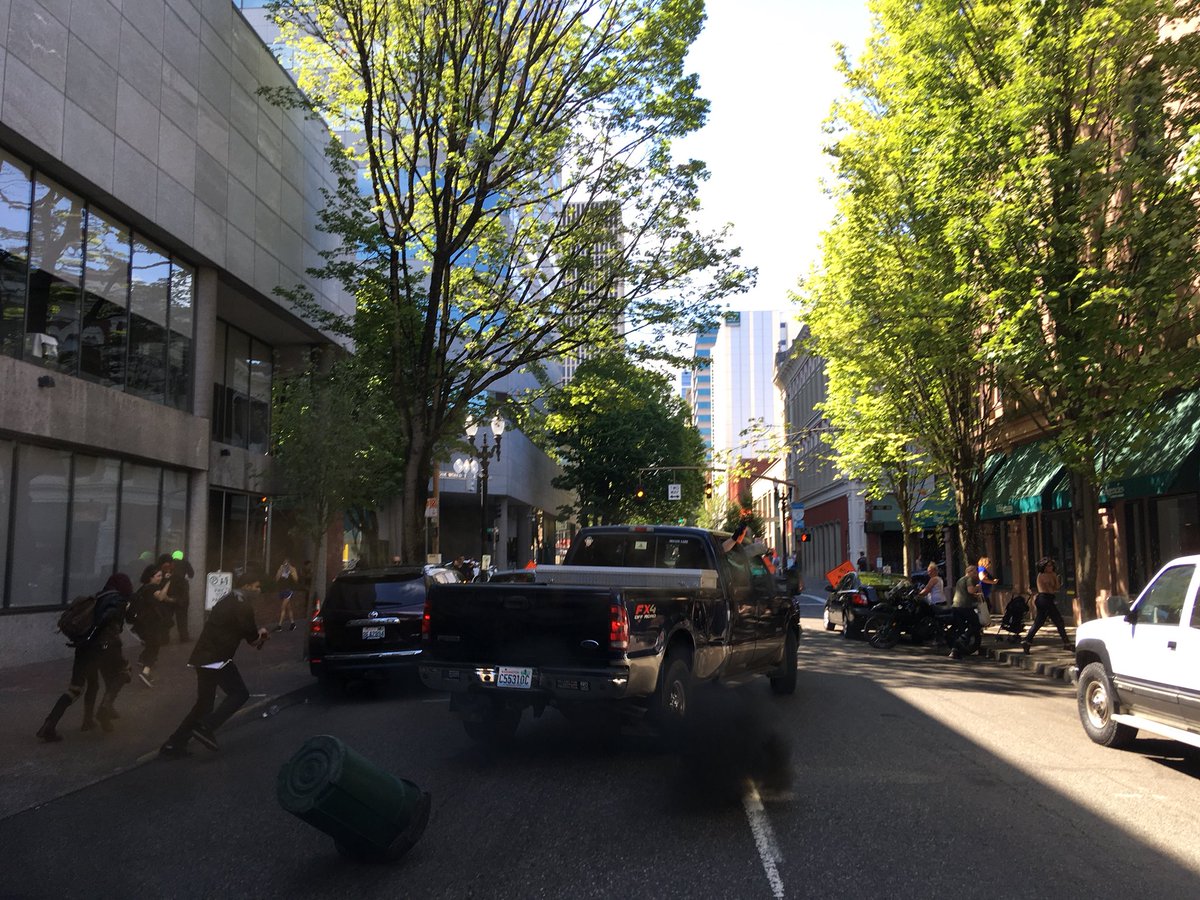
Proud Boys in a truck just sprayed bear mace at antifa blocking their way, leaving a street full of coughing, tearing people behind.: image via Brendan O'Connor @grendan, 4 August 2018
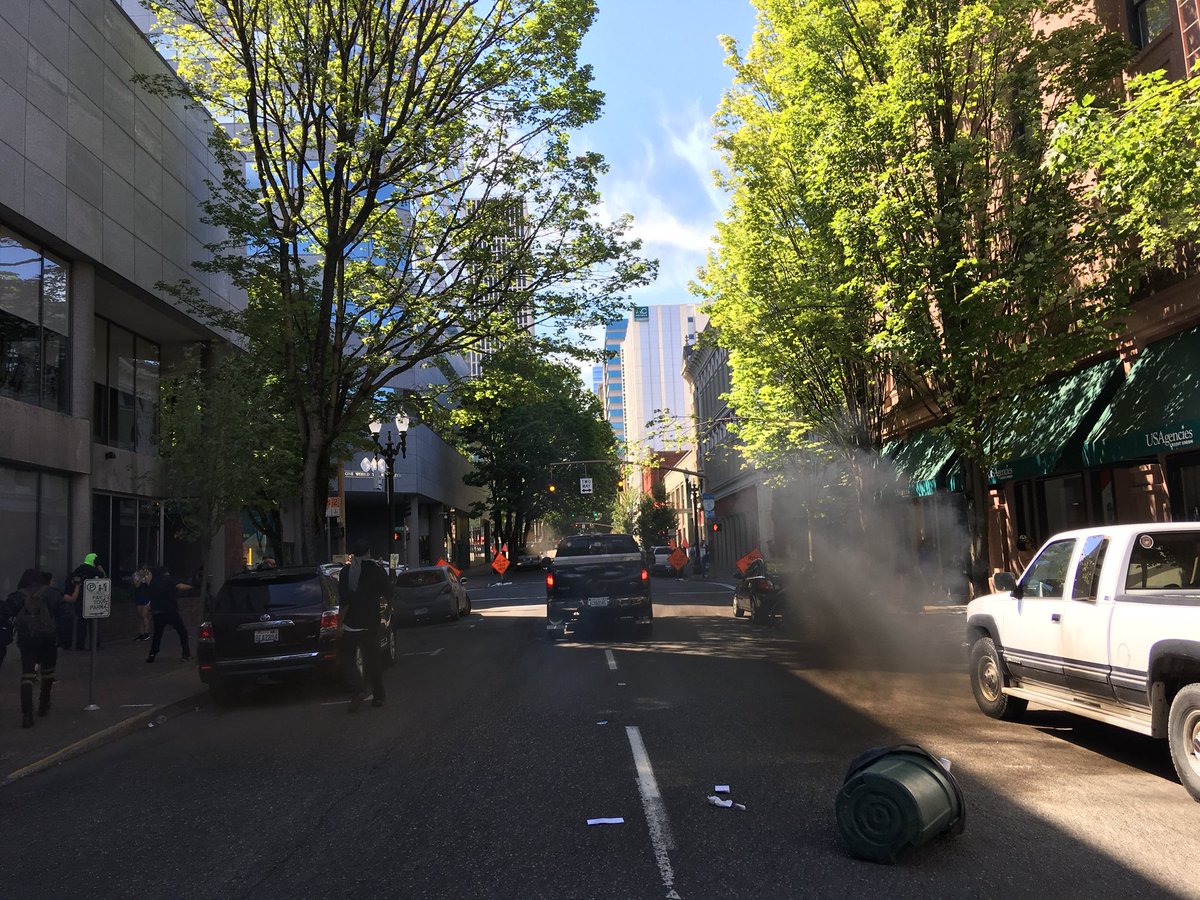
Proud Boys in a truck just sprayed bear mace at antifa blocking their way, leaving a street full of coughing, tearing people behind.: image via Brendan O'Connor @grendan, 4 August 2018
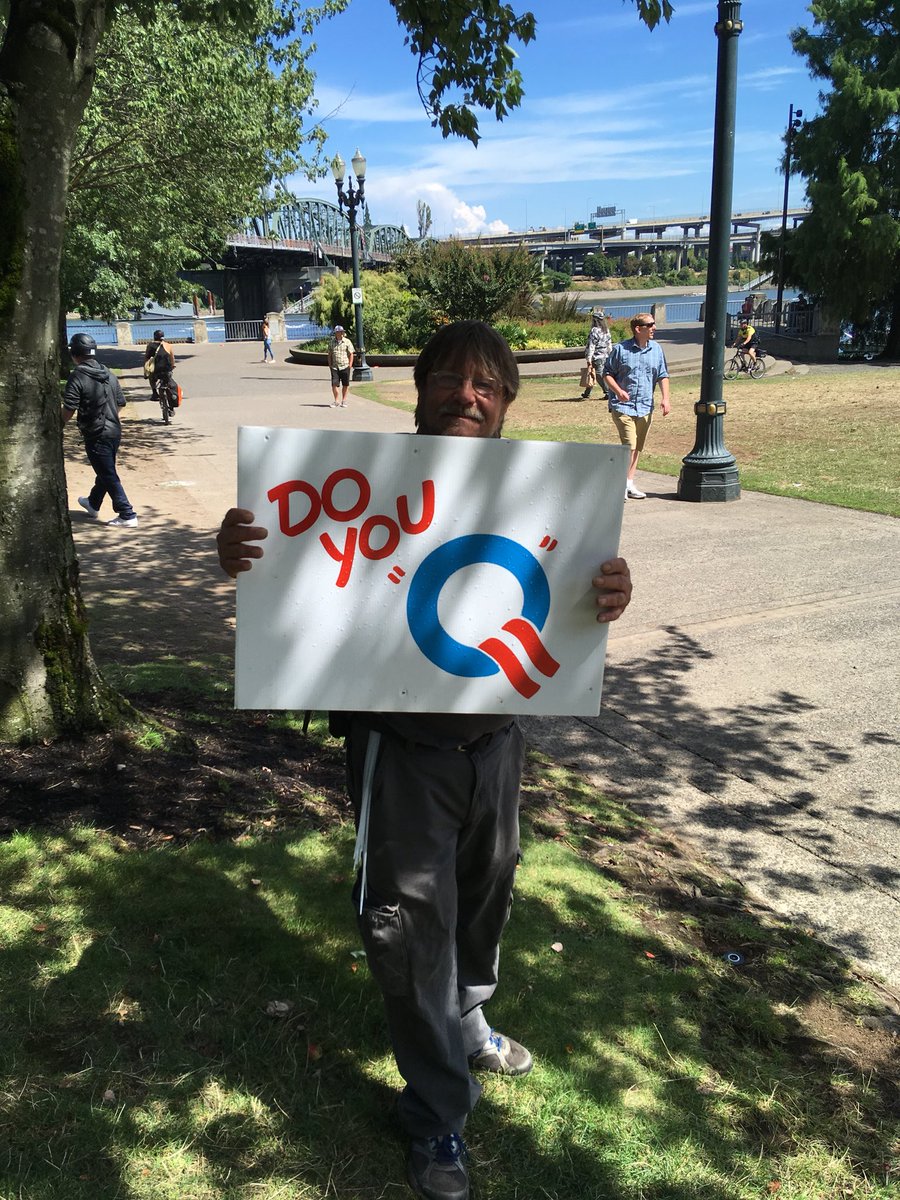
We’ve got a Q person: image via Brendan O'Connor @grendan, 4 August 2018
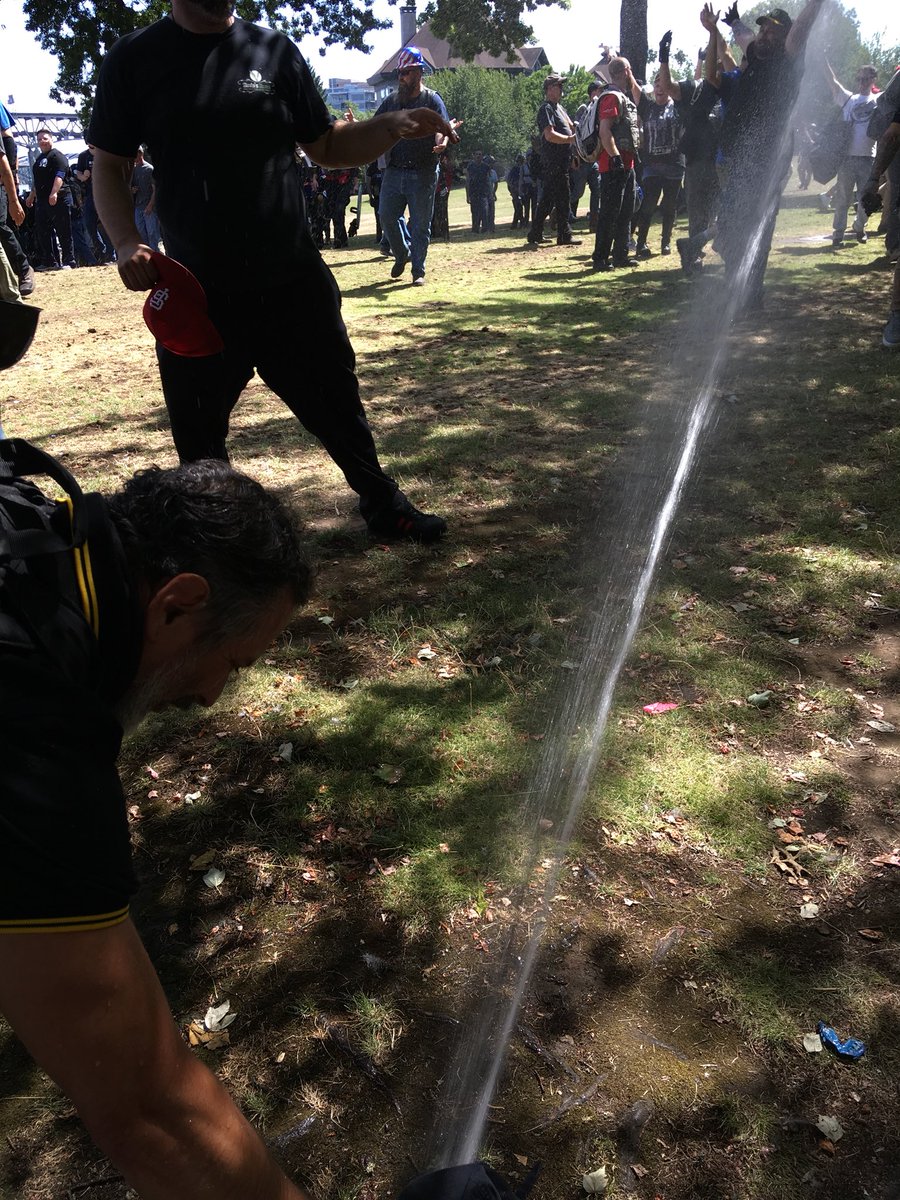
Lol proud boys just got jumped by the sprinkler system: image via Brendan O'Connor @grendan, 4 August 2018

#ProudBoy at #Portland rally that called for migrants to be murdered by smashing their "heads into the concrete" and the forced separation of children from families, is set to speak at #Berkeley rally on August 5th. #AllOutAugust: image via It's Going Down @IGD_News, 25 July 2018

Just a reminder. Stay safe and come ready! See you there. #AllOutAugust: image via Pompo Pompono @PompoTheGuru, 4 August 2018
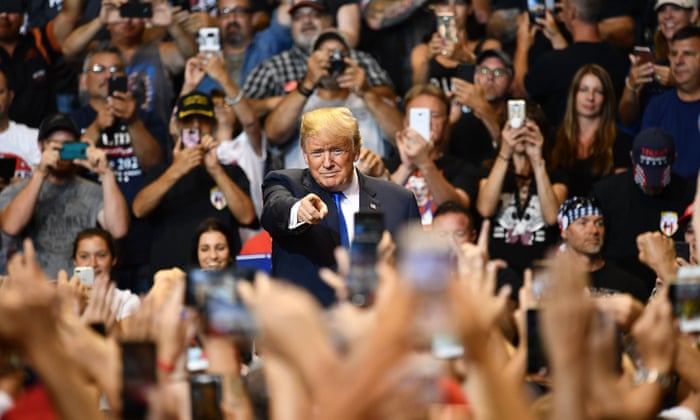
Supporters cheer on Donald Trump at a rally in Wilkes-Barre, Pennsylvania.: photo by Mandel Ngan/AFP/Getty Images, 4 August 2018
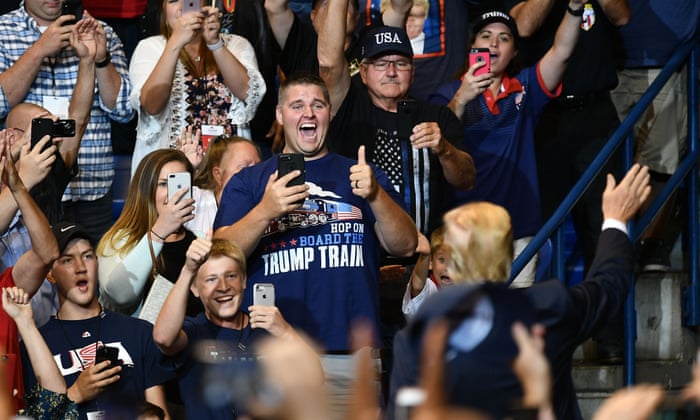
Trump waves to fans after speaking at the rally.: photo by Mandel Ngan/AFP/Getty Images, 4 August 2018
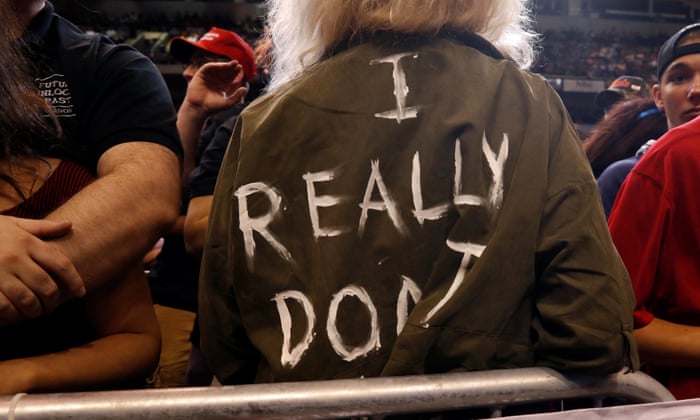
An attendee wears a top reading ‘I really don’t care, do U’, echoing a jacket worn by Melania Trump en route to the US-Mexico border.: photo by Leah Millis/Reuters, 4 August 2018
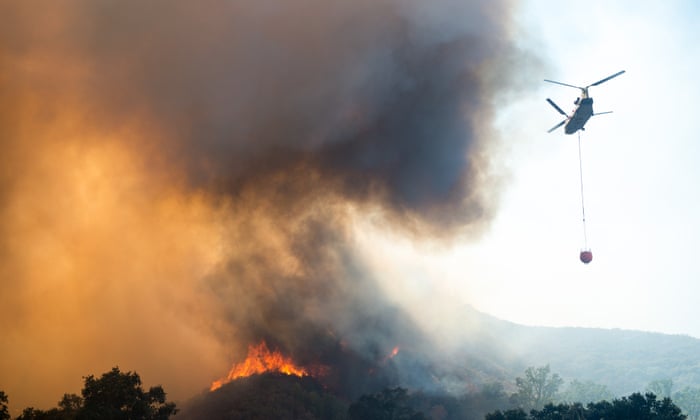
A helicopter drops water on a fire in Lake county north of San Francisco.: photo by Mark McKenna/ZUMA Wire/REX/Shutterstock, 4 August 2018
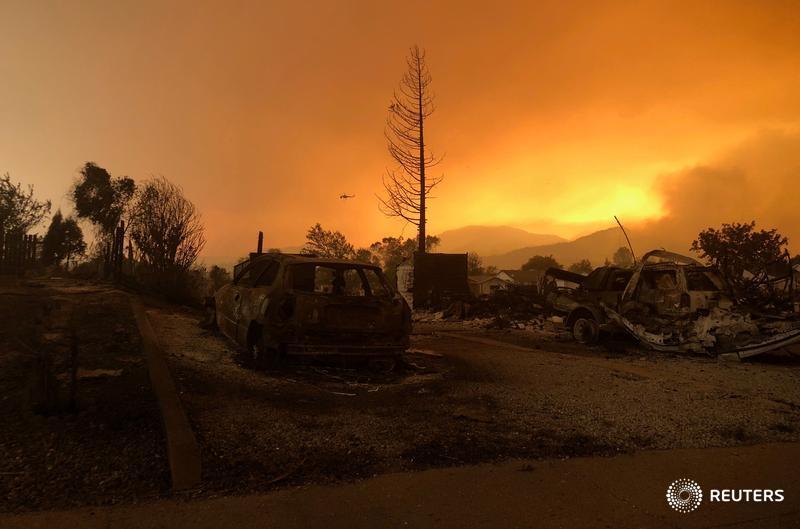
A landscape blackened by wildfire damage is shown from wildfire damage near Keswick, California : photo Alexandria Sage: image via Reuters Pictures @reuterspictures, 4 August 2018

A landscape blackened by wildfire damage is shown from wildfire damage near Keswick, California : photo Alexandria Sage: image via Reuters Pictures @reuterspictures, 4 August 2018
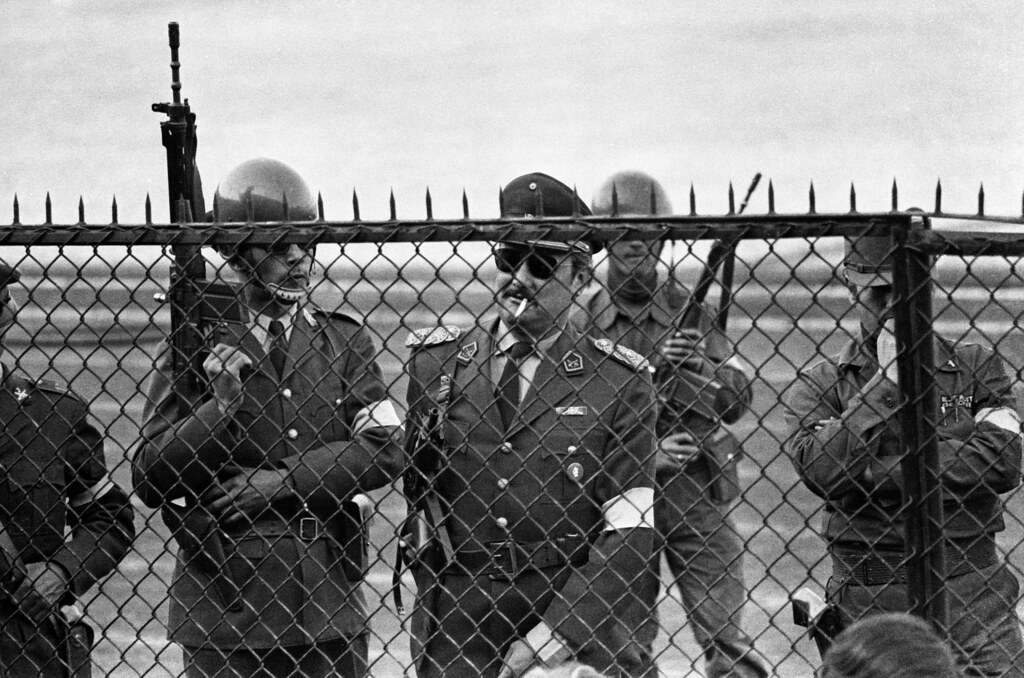
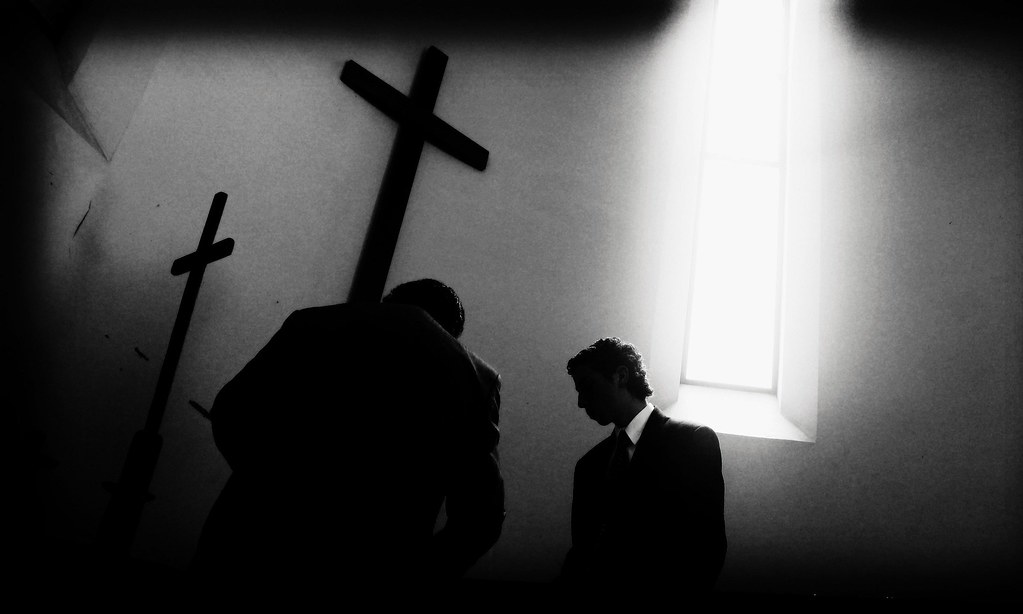
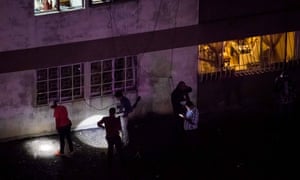
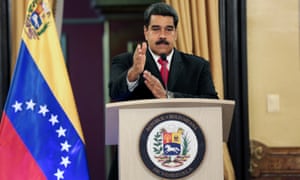
After all these outings w Wooden Boy one ought at least have the courtesy to cease being coy and say he is Duncan Jones of Birmingham UK, Welsh by blood, poet by avocation, worker with children in a good way as vocation. Hail Brum!
ReplyDeleteWas interested to be put in mind of FDR being affable w the journos, 1933. E'en as a child I loved the voice of FDR. Also loved the voice of the great John Garfield (Body & Soul) playing FDR's dog Fala on my fave record of 1945.
"It is well within the inventive capacity of man, who has built up this great social and economic machine capable of satisfying the wants of all, to insure that all who are willing and able to work receive from it at least the necessities of life. In such a system, the reward for a day's work will have to be greater, on the average, than it has been, and the reward to capital, especially capital which is speculative, will have to be less. But I believe that after the experience of the last three years, the average citizen would rather receive a smaller return upon his savings in return for greater security for the principal, than experience for a moment the thrill or the prospect of being a millionaire only to find the next moment that his fortune, actual or expected, has withered in his hand because the economic machine has again broken down."
- FDR, Commencement address, Oglethorpe University, 1932
In other news, The object of our brave navy seal caneoeing in the compound his #1 son has just now wed the daughter of the bravest and most skilt of pilots and student of the medieval city plan of Aleppo, Mohammed Atta. What menyth this.
the many sources of hate...
ReplyDeleteThank you for posting this one, Tom.
ReplyDeleteNeruda's death; August wasn't too fond of poets.
Sandra and WB,
ReplyDeleteFam, the both of you, hereabouts.
WB your admirable discretion seems to have run up against my curious impulse to spill the beans, so that the Care Centre has come up undercredited... I've said "children", but how does one say, "those who are in greatest need"...?
Sandra, while going through Marcelo Montecino's remarkable archive the past few weeks, I've been struck by the comments from his fellow Chileans, who retain extremely strong feelings - sadness, anger, disgust, and more - from the period of the junta. His photo of his own early photo from the Terror, looking through the tunnel into the Stadium where the killings were going on, later reframed on the cracked ceramic tiles of the Stadium bathroom wall, has been a catalyst for many emotions for many people. And of course his images of Pinochet have proved intensely provocative, for reasons equally not hard to fathom.
What can we out here really know about these things that remain unspeakable for so many who lived though those times?
Like others here, I appreciate your look into Marcelo Montecino's, to me at least, unknown work. And thank you, too, for that intro to WB, a voice I enjoy hearing here. With Montecino's work, I keep guessing you'll post a tangential sampling of Victor Jara. And, just so you know, one of our pups is named in honor of FDR's mutt, Fala. I hope you and yours are well, and safe from the fires, my friend.
ReplyDeleteThanks very much Tom, always swell to hear from you. Montecino's work is pretty much unknown to everybody outside Chile. You've just seconded the inner motion to post VJ with MM... which I have no good excuse for not doing as yet... but if not exactly good, problems with the ancient and failing bent frame do provide an excuse of (an appropriately weak) sort... a bit of surgery has happened, but not enough...
ReplyDeleteFrom the look of the bloody orange sundowns to the ceaseless pandemonium of the sirens to the stink of the smoke, the fires are always with us now... what really chafes the soul is the sense of loss, what's compounded and compacted into this foul omnipresent haze is all that made life livable for every species not ours... the forests going up in a cloud of particulates, and what goes up must come down.
I want to know your dogs someday. In some life.